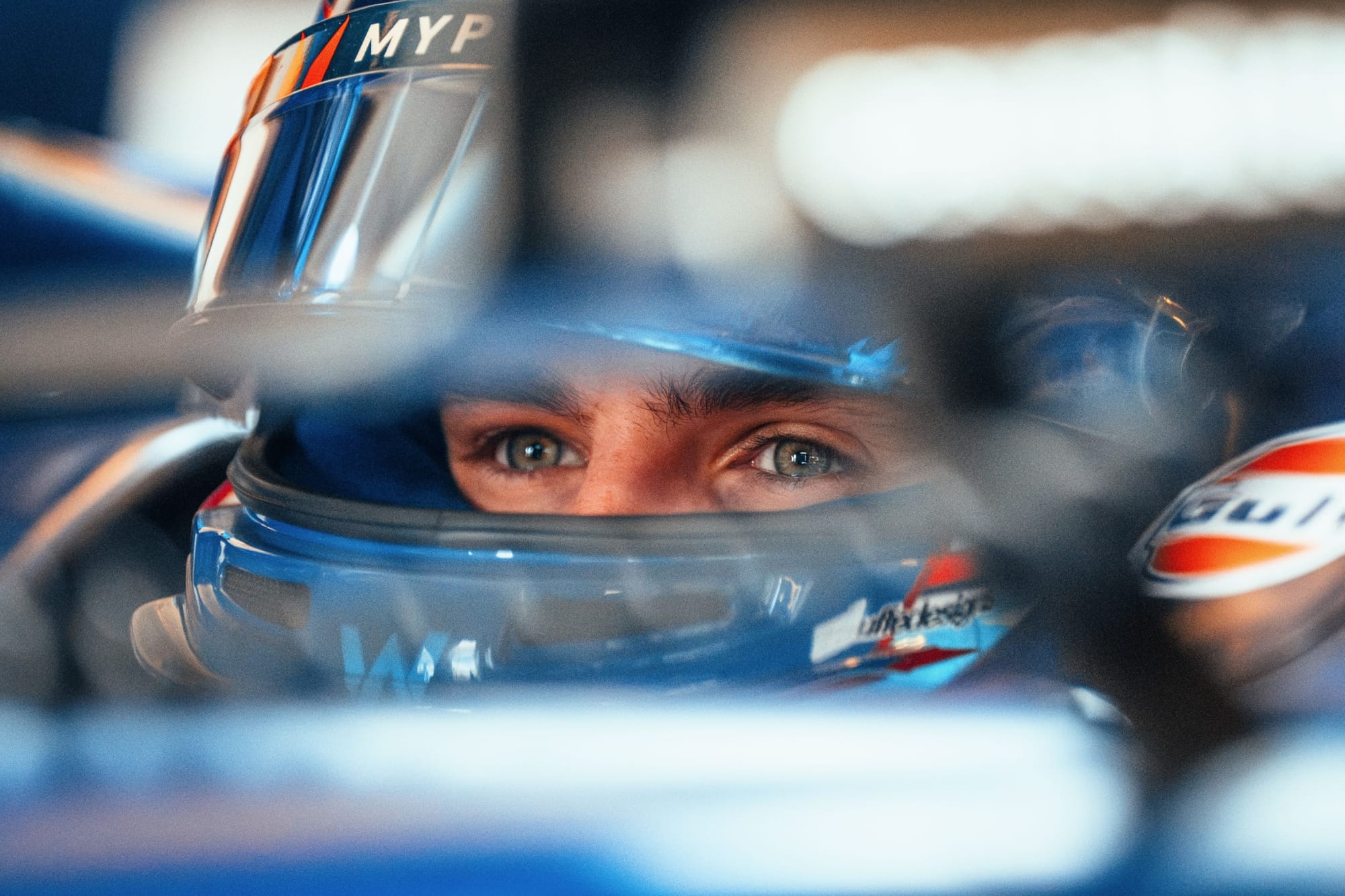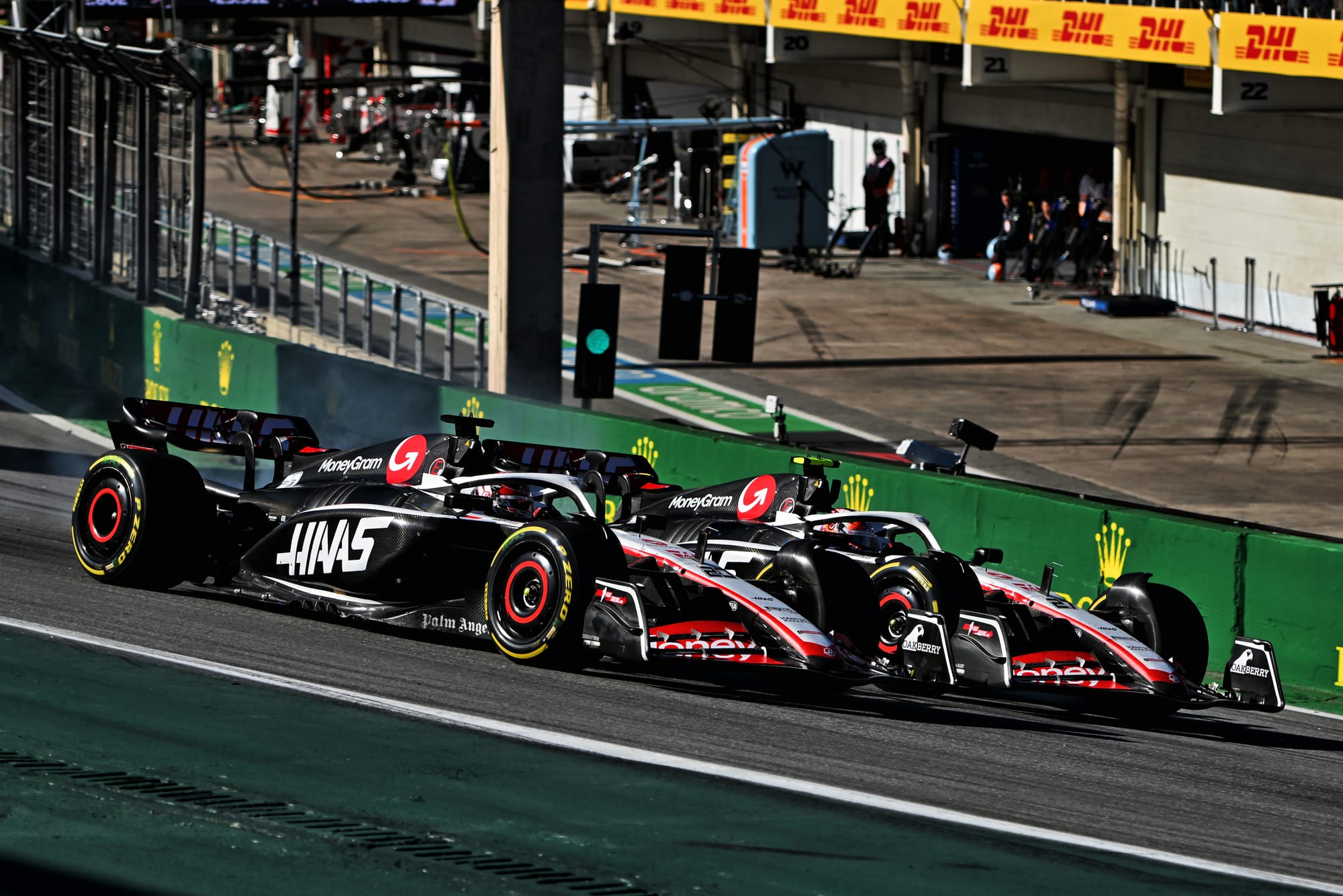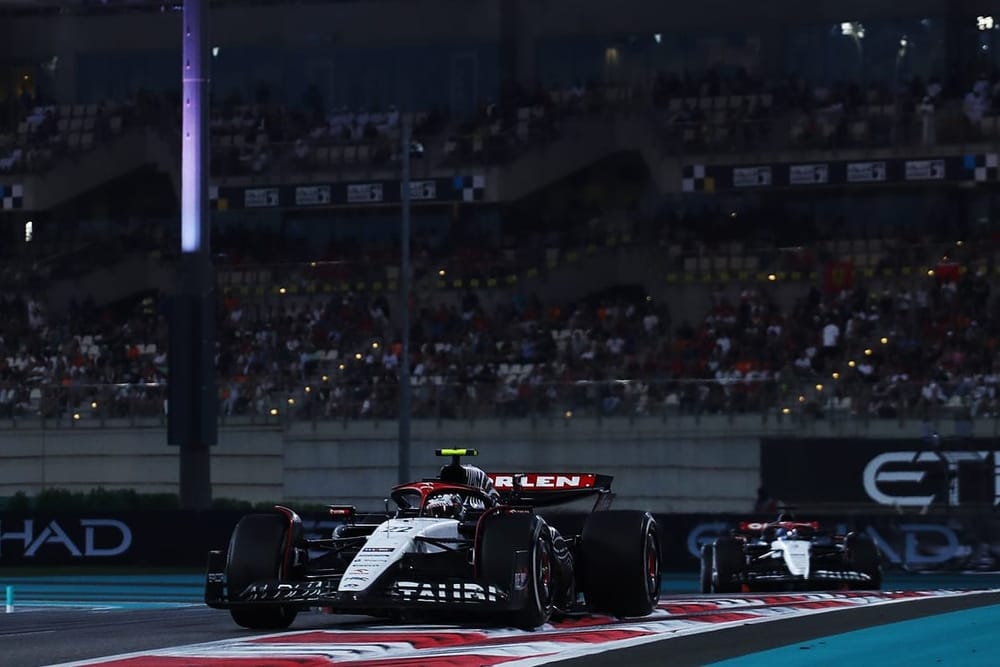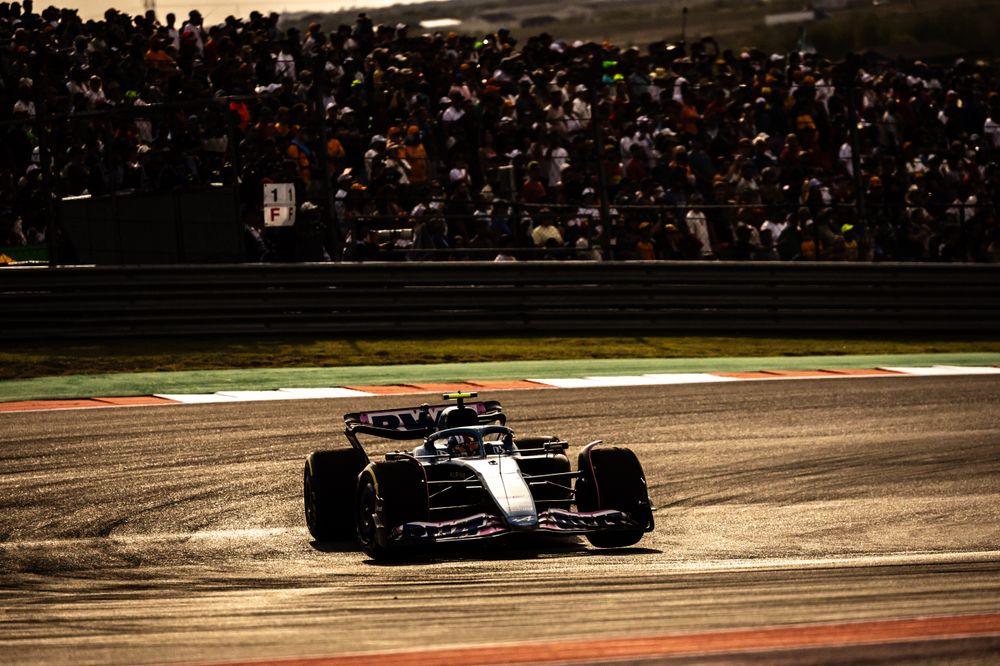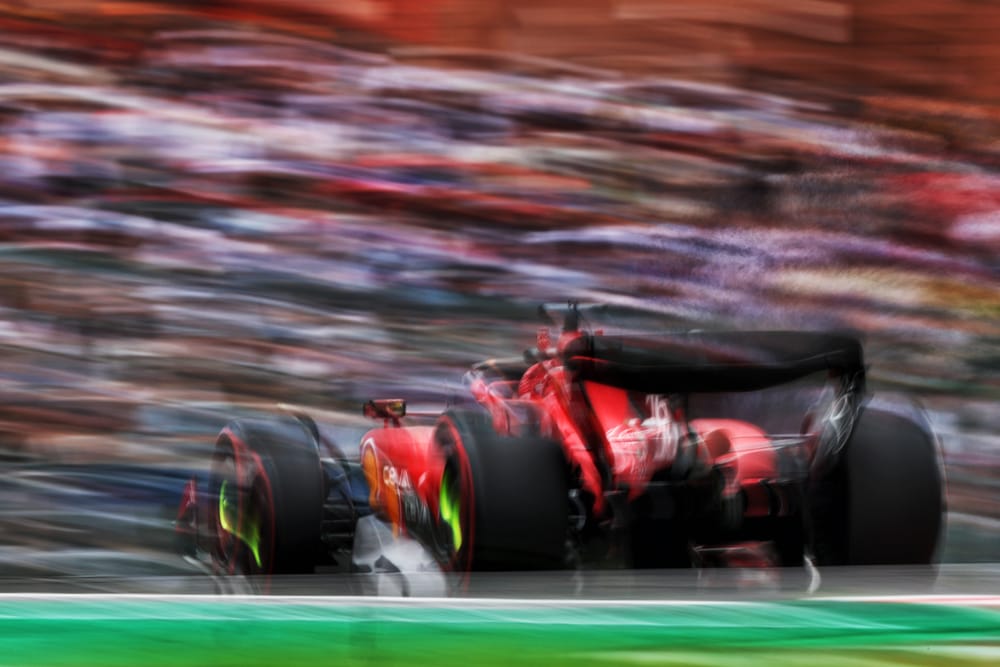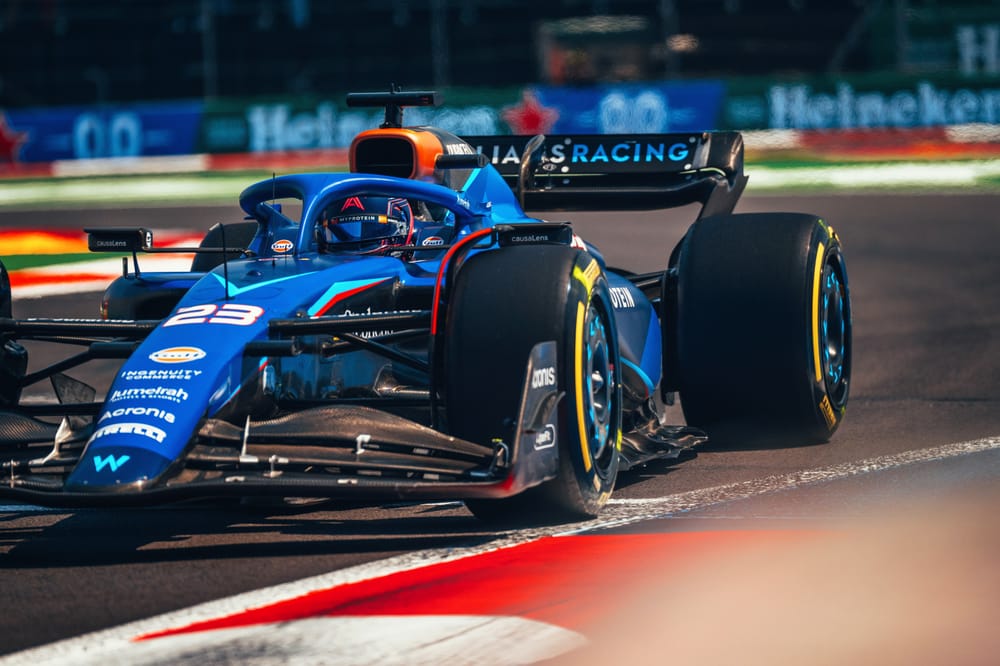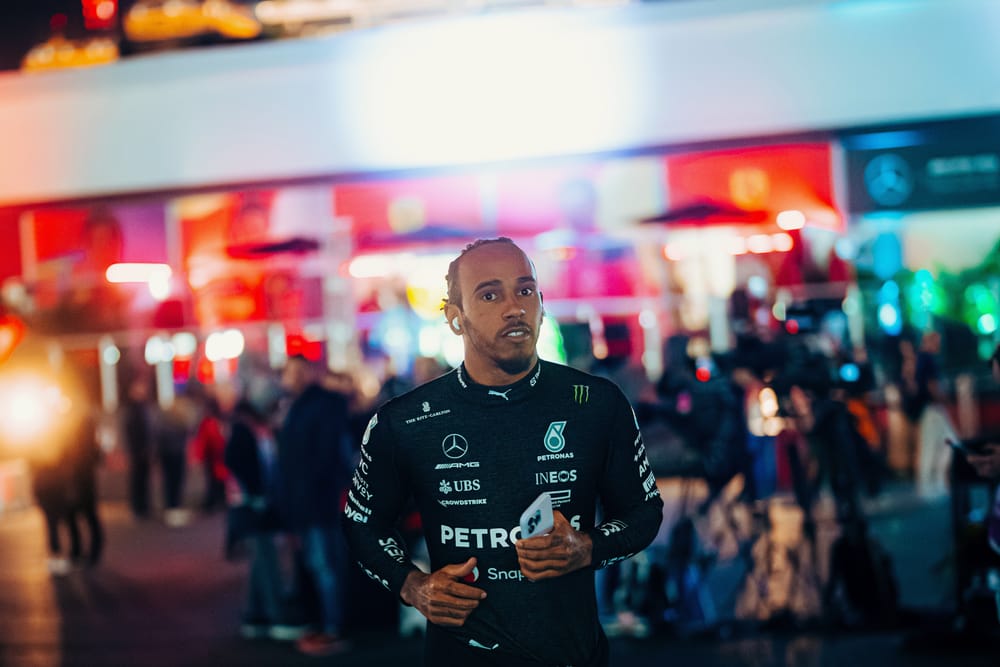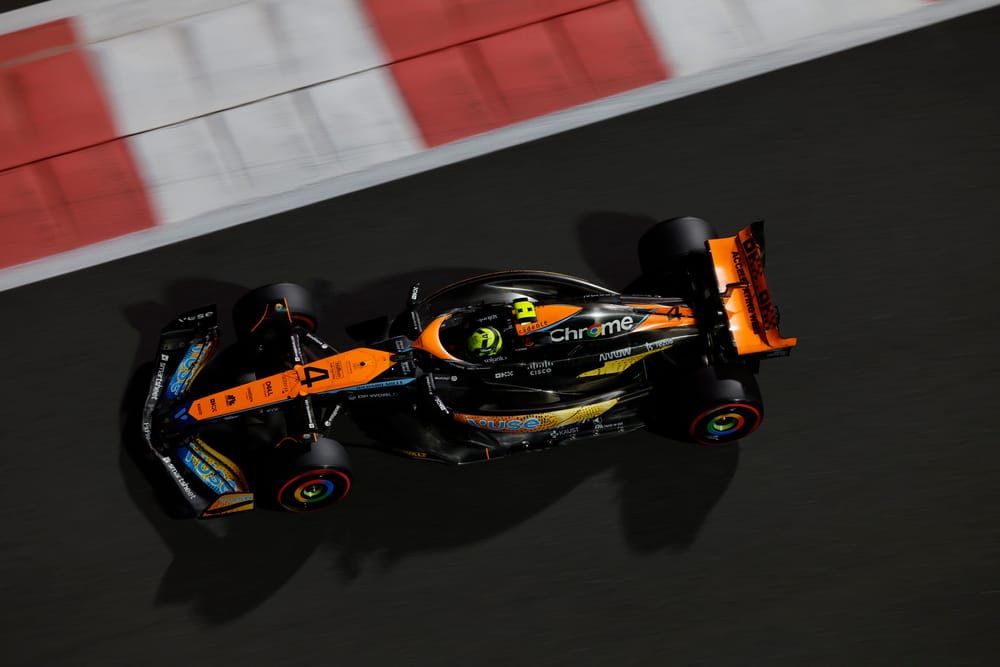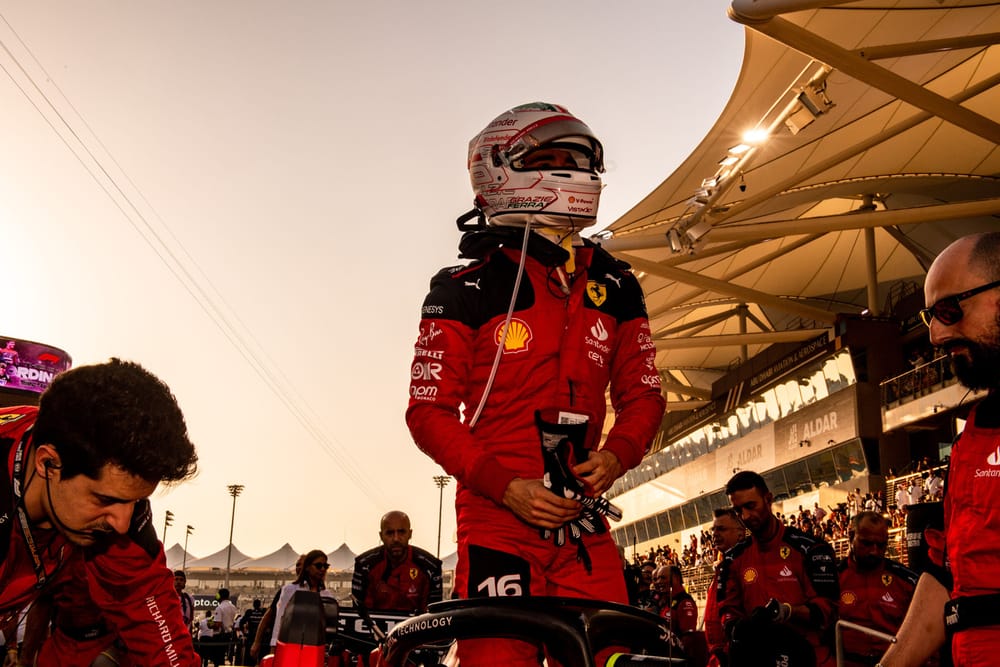Up Next

The championship table might tell one story, but points are far from the best way to rank the 2023 Formula 1 drivers.
Every year The Race's F1 writers stick their collective heads above the parapet to risk angering, or perhaps even end up delighting, the dedicated fans of every single driver by creating a definitive ranking.
This is based solely on their 2023 performances, relative to the machinery. It’s not a ranking of the overall ability of the drivers to say who is best and worst, but an evaluation of how they did over the 22 grand prix weekends.
So this factors in everything from qualifying speed and racecraft to the number of mistakes made and consistency - and every other metric in between.
And it reflects not the opinion of one individual, but The Race’s team of F1 journalists: Mark Hughes, Edd Straw, Scott Mitchell-Malm, Ben Anderson and Josh Suttill.
The list also features extracts of our writers' opinions from the accompanying podcast where they debated their differing top-10 placements.
22 NYCK DE VRIES
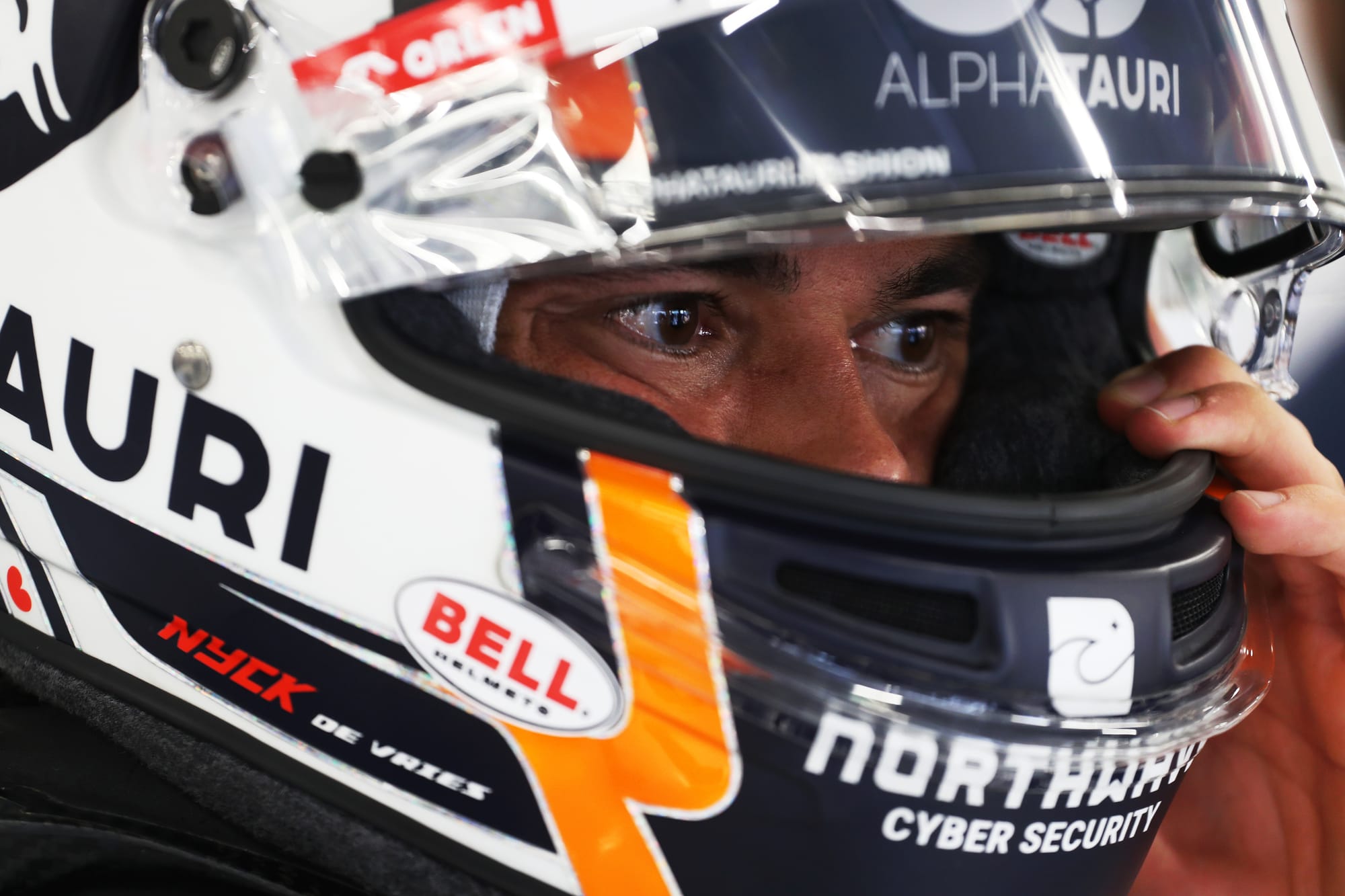
De Vries’s long-awaited F1 break didn’t last long as he was dropped by AlphaTauri after just 10 races.
It was certainly a harsh and impatient decision, but ultimately had De Vries made a bigger impression behind the wheel he could have hung onto his seat.
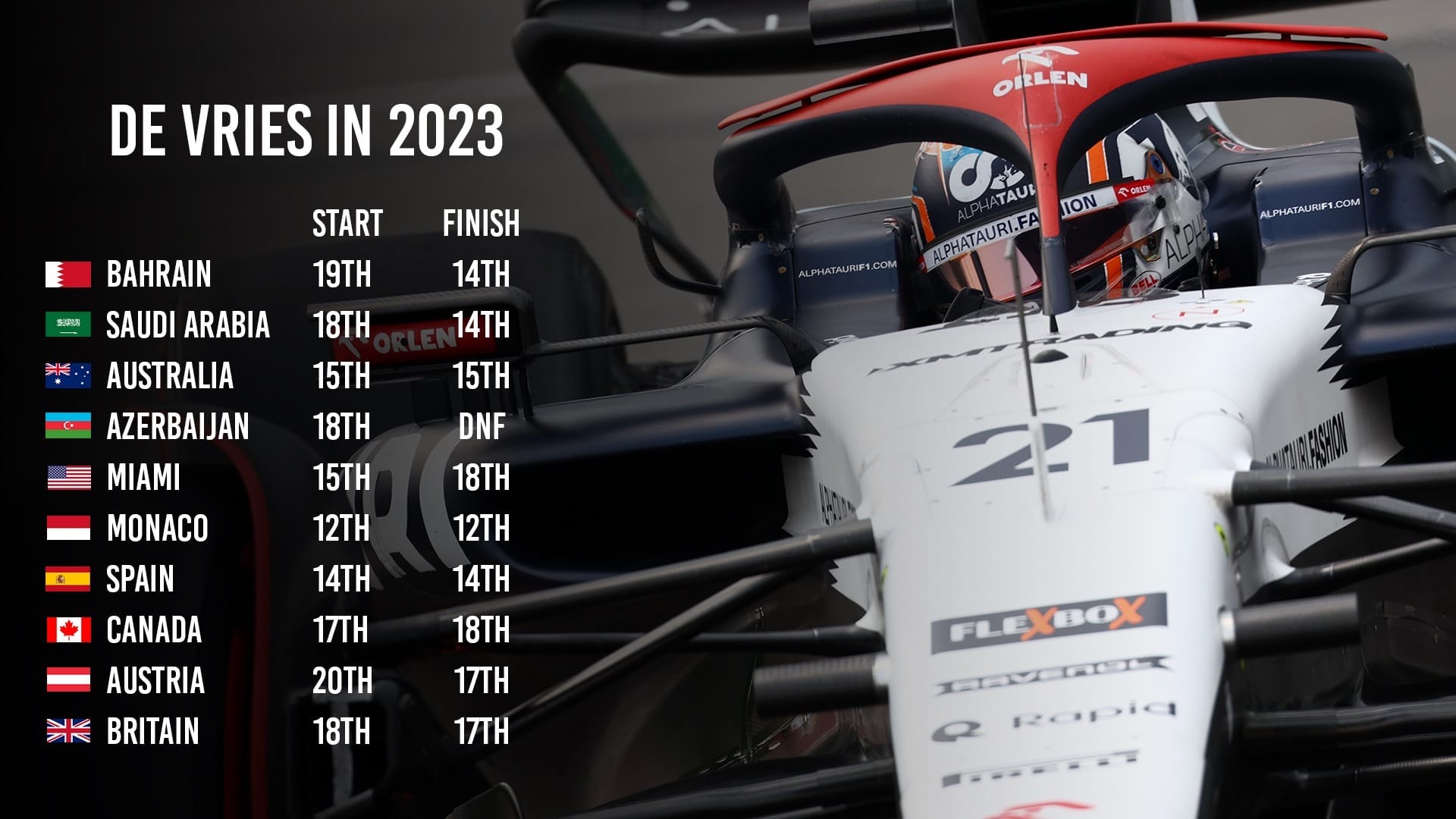
The AlphaTauri was at its worst in the first half of the season, struggling with late-entry instability and rarely a points threat. But De Vries only outqualified Tsunoda twice in 12 attempts - including the two sprints - and failed to score a point.
His best weekends were probably Monaco, where he had a solid run to 12th, and Spain, where he showed potential Q3 pace but fell in Q1 after making two errors.
21 LOGAN SARGEANT
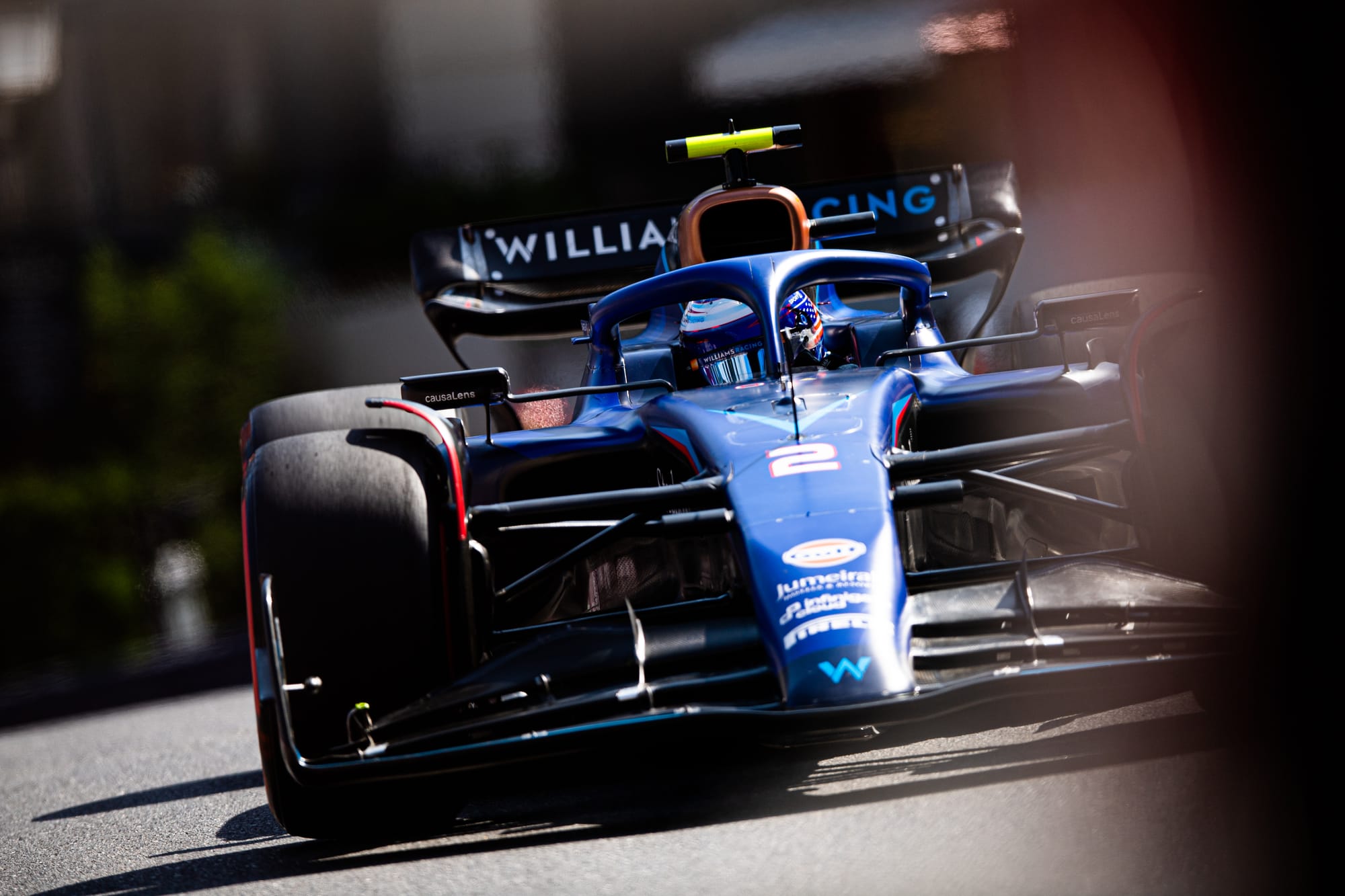
Sargeant showed flashes of genuine speed. The trouble is these were rarely strung together and he made too many mistakes, which makes it impossible to rank him any higher.
He scored just one point, for 10th place at Austin after two cars ahead were excluded, and was outqualified by team-mate Alex Albon in every single session. Albon was a tough benchmark, but as Oscar Piastri showed rookies can perform much better than Sargeant did.
Sargeant did improve as the season progressed, with Las Vegas probably his strongest weekend as he qualified sixth and then had a solid race, albeit one that still featured a clear deficit to Albon.
Sargeant goes again next year but must string things together more often or Williams's admirable patience will run out.
20 ZHOU GUANYU
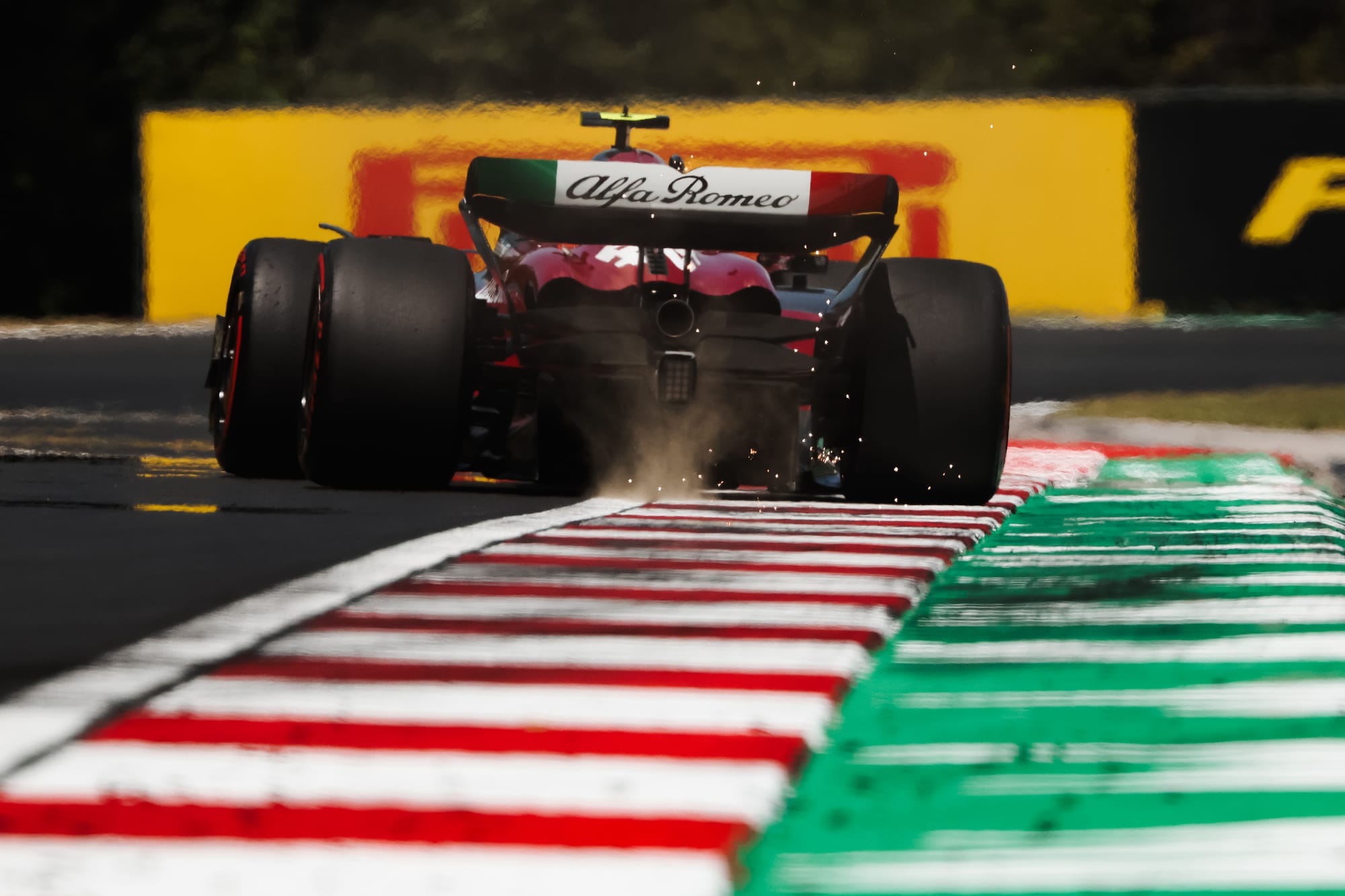
Zhou did take a step forward in performance in his second F1 season, but not by enough in terms of his pace. He only outqualified team-mate Valtteri Bottas six times and despite the occasional eye-catching performance - such as a remarkable fifth on the grid in Hungary - he too often struggled to get the most out of the car over a single lap.
The Spanish Grand Prix was his standout weekend, taking ninth in the race, but there were very few weekends of that calibre.
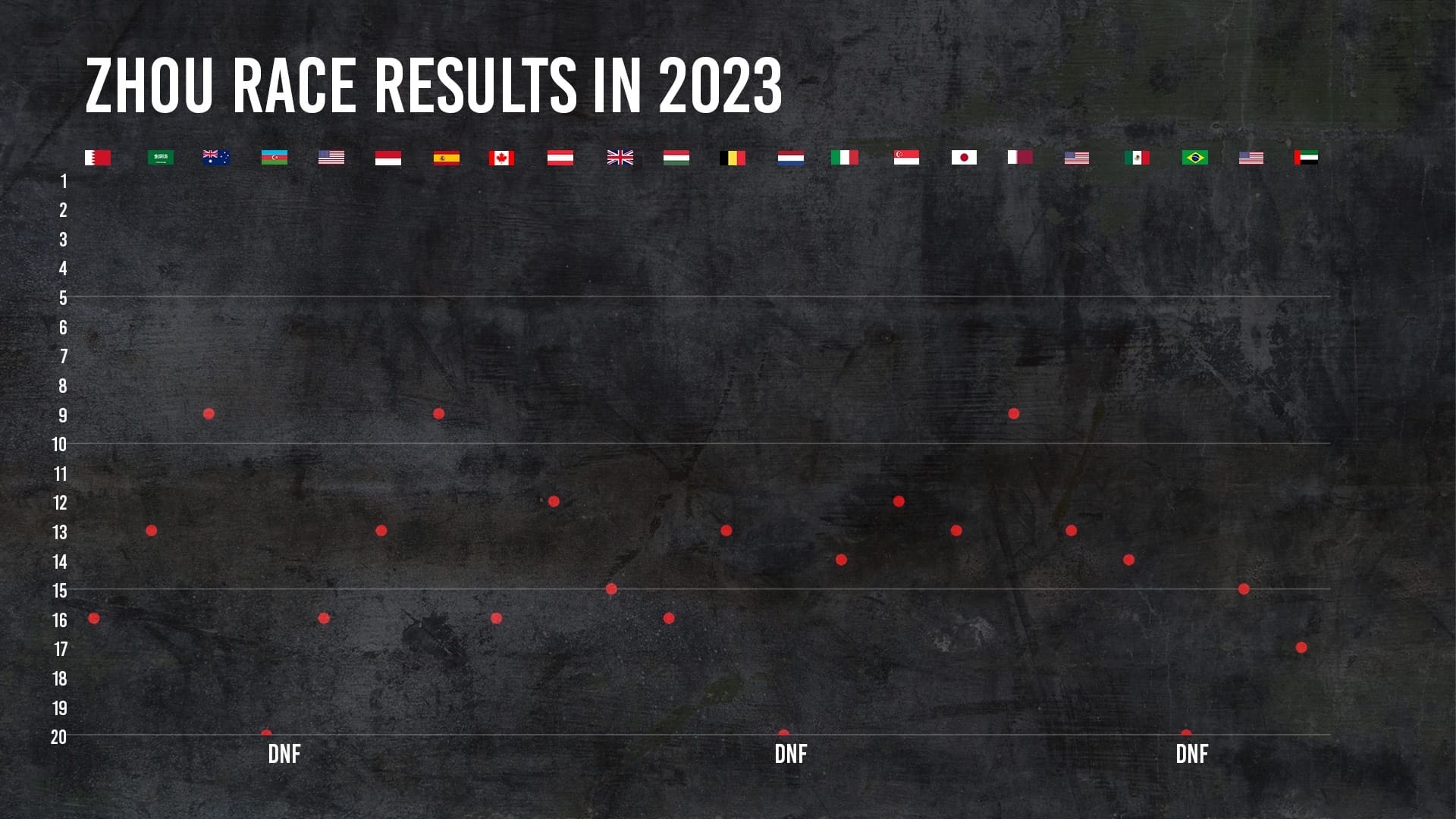
He continued to work well with the team technically and was popular with those he worked with. He also didn’t make too many mistakes, but the most obvious of the ones he did make was highly costly when he locked up and triggered a first-corner crash in Hungary after a brake-settings conflict led to him launching - from that aforementioned fifth place - in a safe start mode.
The trouble is that having made a promising start compared to Bottas last year, he wasn’t able to build on that enough in 2023. So it’s a case of must do better next year.
19 KEVIN MAGNUSSEN
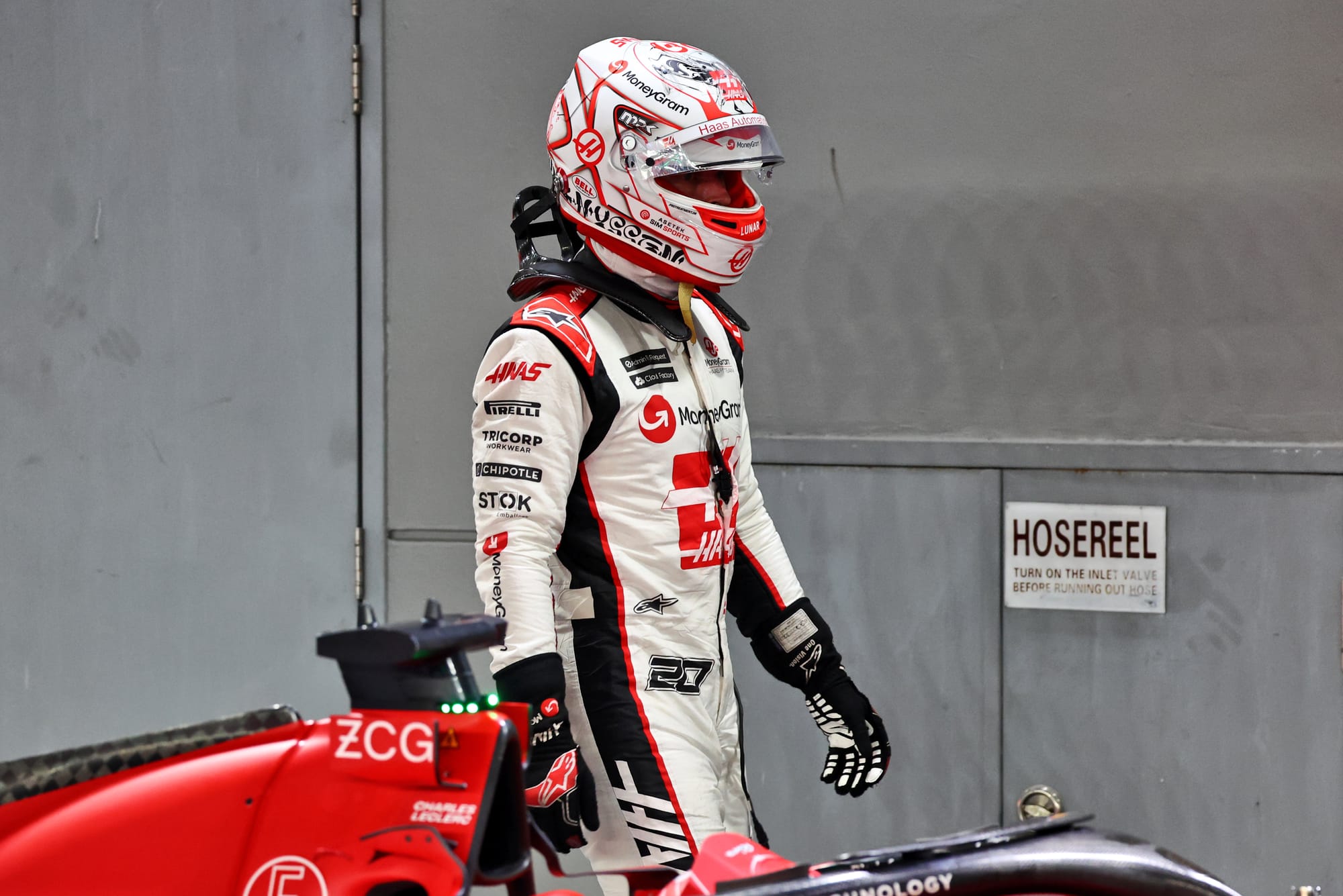
Magnussen only appeared to turn up for the street circuits, with all three of his points for 10th-place finishes coming on such tracks in Saudi Arabia, Miami and Singapore.
The rest of the time, he struggled to extract anything like the qualifying pace Nico Hulkenberg did from the car. That’s because he struggled badly with its turn-in characteristics and wasn’t able to attack the corners on the brakes.
As he put it, this year's Haas turned “characteristics in my driving style that are strengths into weaknesses”.
Given the Haas was a tyre-degradation nightmare, there wasn’t much more Magnussen could have done in the races but fundamentally his hopes of scoring on orthodox circuits were sunk by his poor qualifying pace. That’s despite the fact that in the races he performed better relative to Hulkenberg than he did in qualifying.
18 DANIEL RICCIARDO
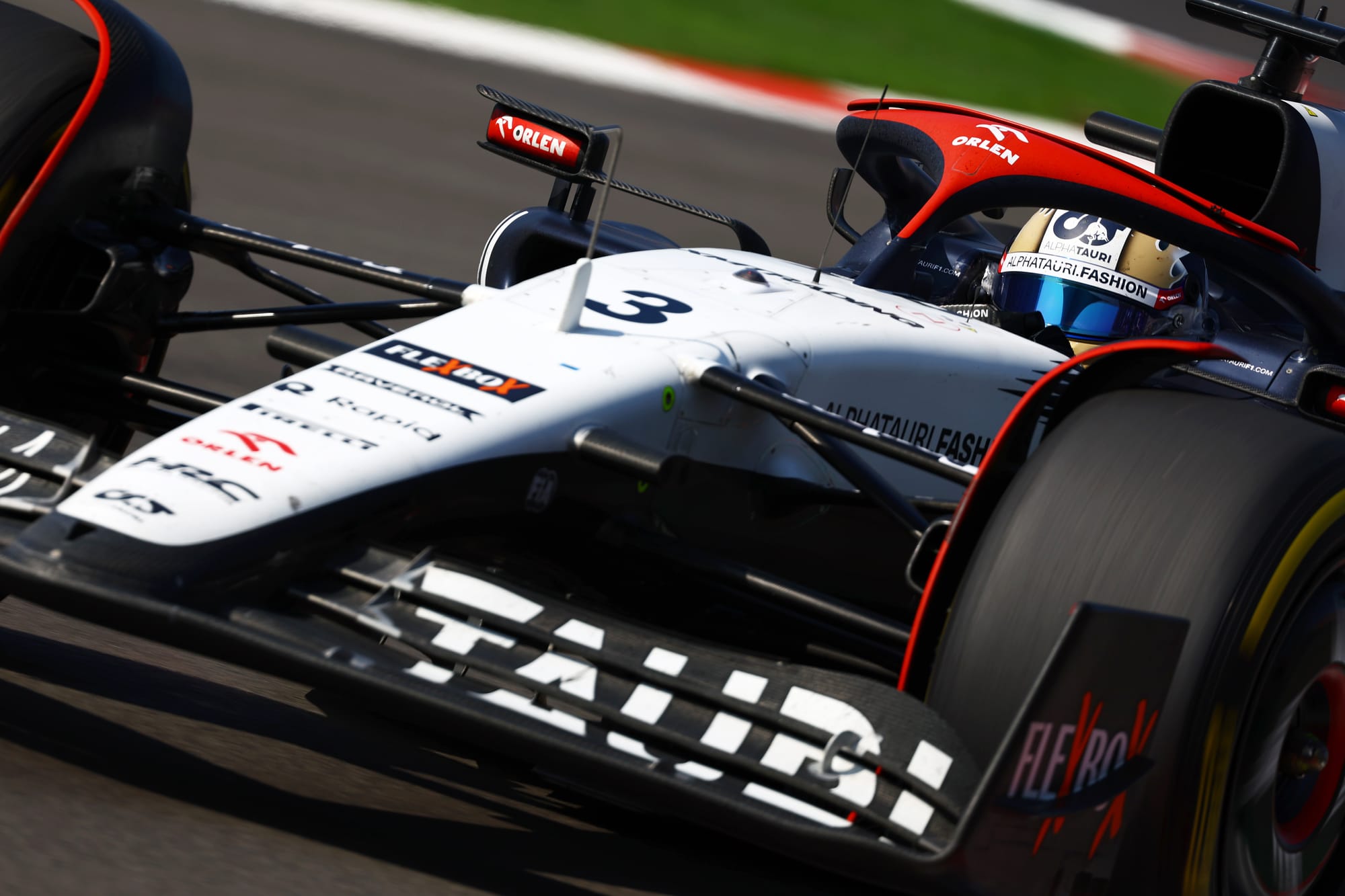
The returning Australian only had seven events to make an impression, after a hand injury sidelined him for five races. And while he wowed with a superb Mexican GP weekend, the rest of his part-season wasn’t up to that standard.
Generally, Yuki Tsunoda had the edge in terms of underlying pace at AlphaTauri and that’s something Ricciardo needs to reverse next year if he has grander ambitions in the Red Bull stable. But what really mattered was that Ricciardo was not the pale shadow of a driver he was with McLaren in 2022.
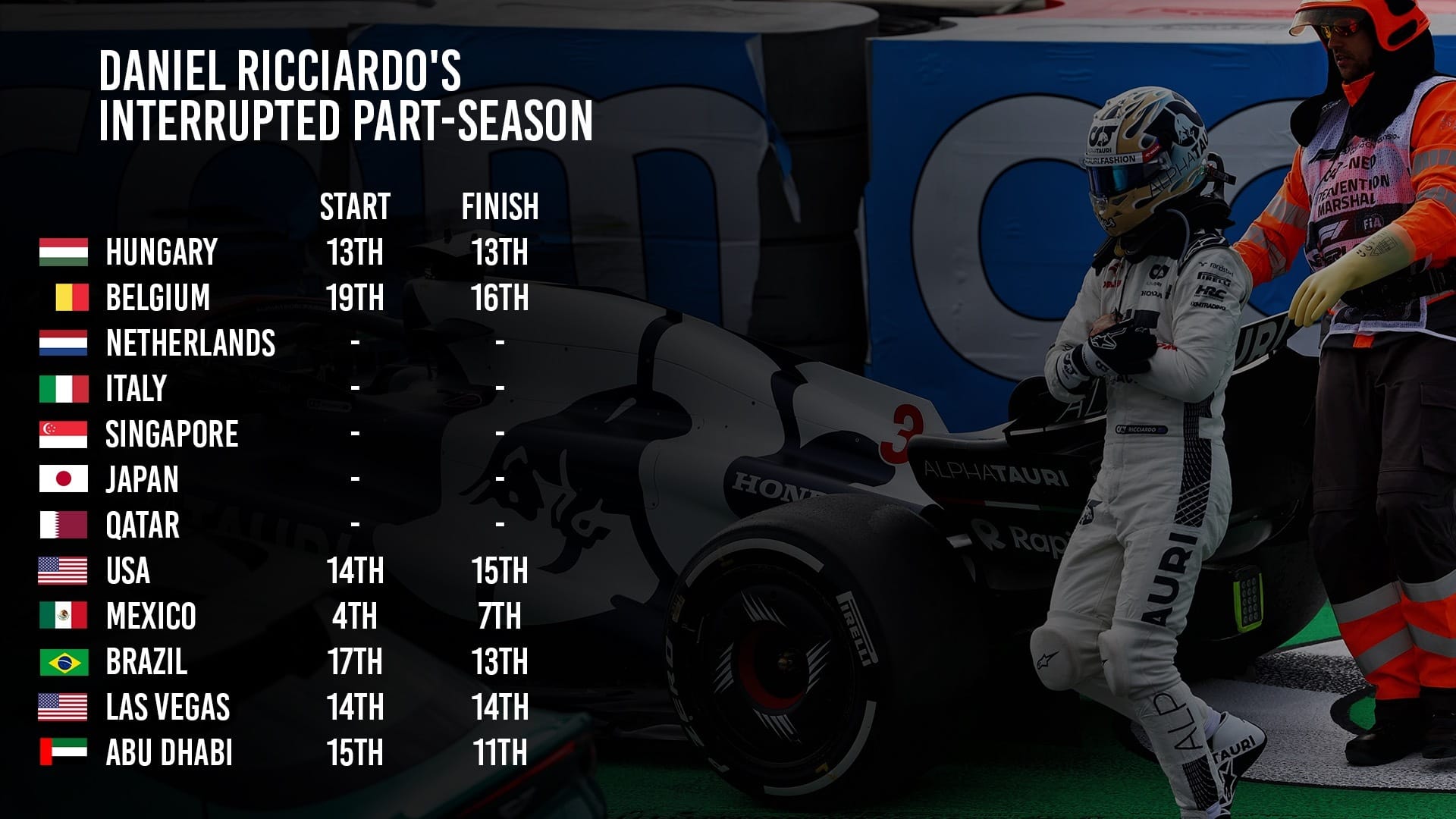
So while Ricciardo doesn’t rank highly here - and he would have been further up with a full season - it was mission accomplished for him as he revitalised his F1 career. Now he needs to build on that in 2024.
17 LANCE STROLL
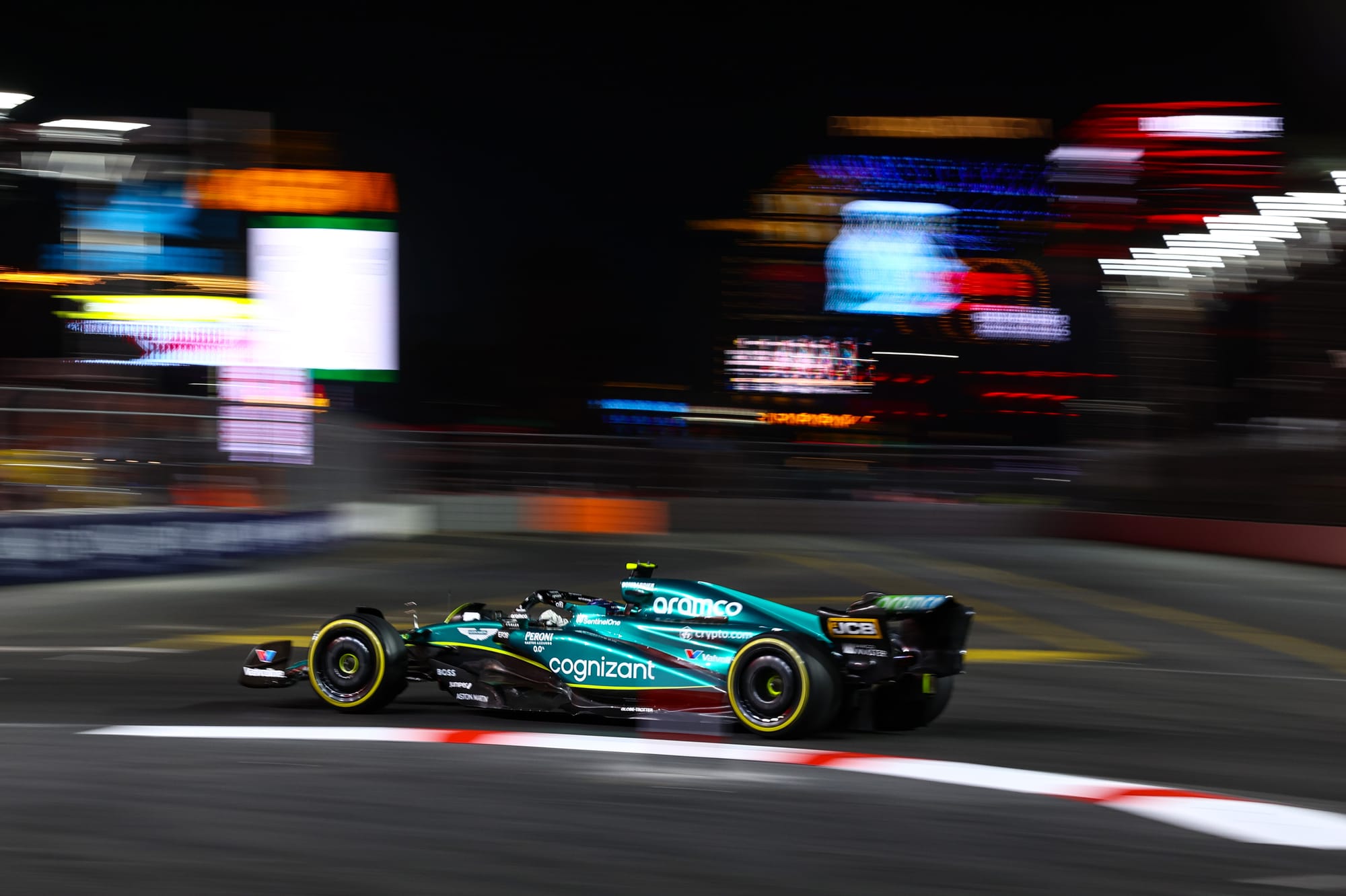
Stroll’s season started with hugely impressive grit and determination as he finished sixth in Bahrain despite no pre-season testing and injuries sustained in a cycling accident. That kicked off a solid run in the first part of the season, although it fell well short of the standards set by team-mate Fernando Alonso.
But as the Aston Martin evolved, Stroll struggled with the rear-end instability that shattered his confidence. That led to a difficult run of five pointless weekends after the summer break, a run that included missing the Singapore GP after a qualifying crash.
However, Stroll did recover to finish the season with a run of three strong races, taking fifth places in Brazil and Las Vegas, then a point for tenth in Abu Dhabi.
16 VALTTERI BOTTAS
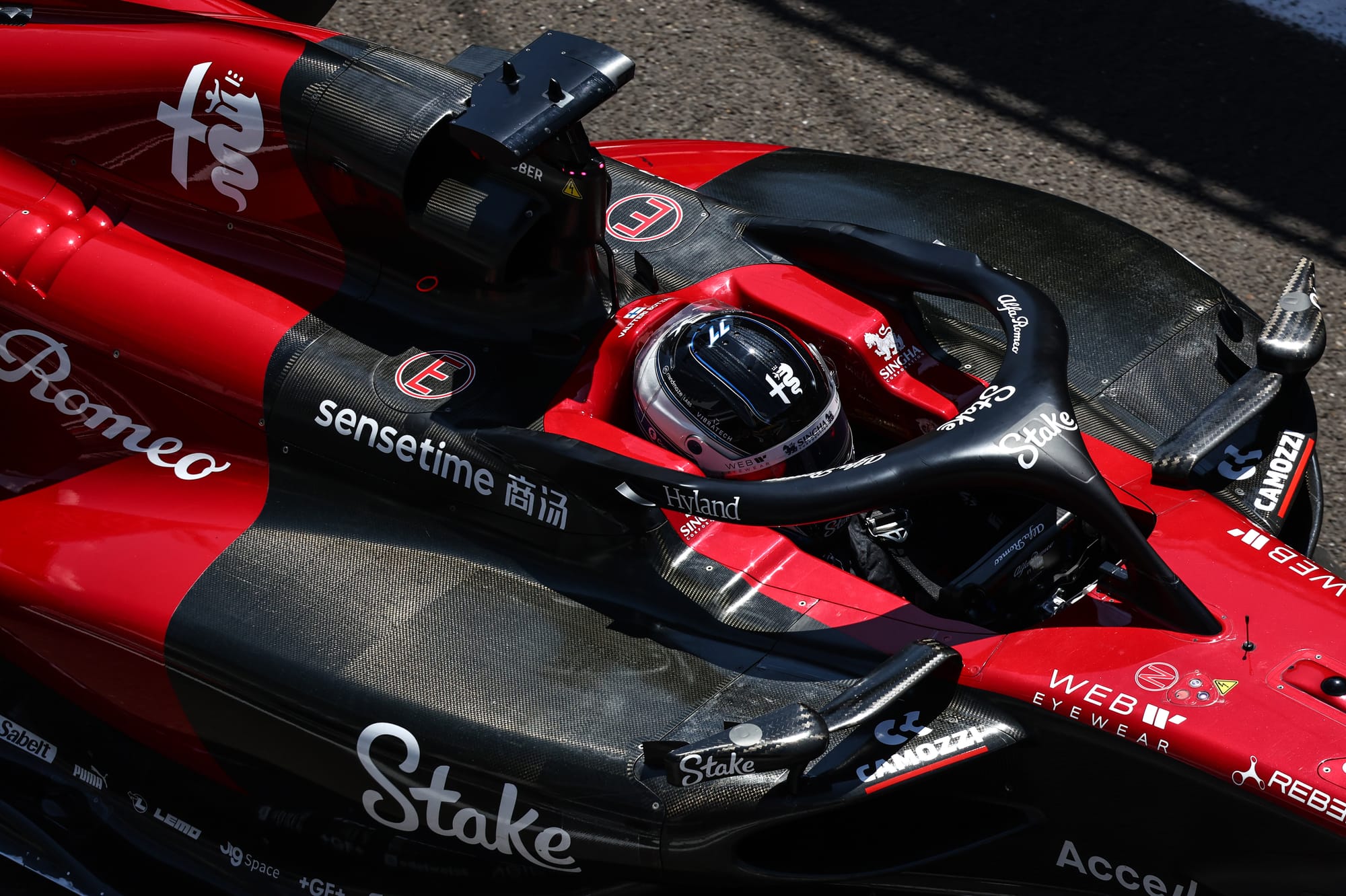
It was difficult to make a good impression given the Alfa Romeo was, on average, the slowest F1 car in 2023. But Bottas’s best work was genuinely impressive, notably his well-executed two-stopper to take eighth in Bahrain and a repeat of that result in Qatar.
He also turned in several good performances in pointless causes, such as in Monaco. There was also plenty of bad luck too, notably at the first corner in Las Vegas where he started seventh on the grid but soon had Alonso spin into his path.
However, there were also a few too many weekends where Bottas seemed a little off his best. That’s what hurts his ranking, and potentially denied him a few more points in what was a difficult season.
15 LIAM LAWSON
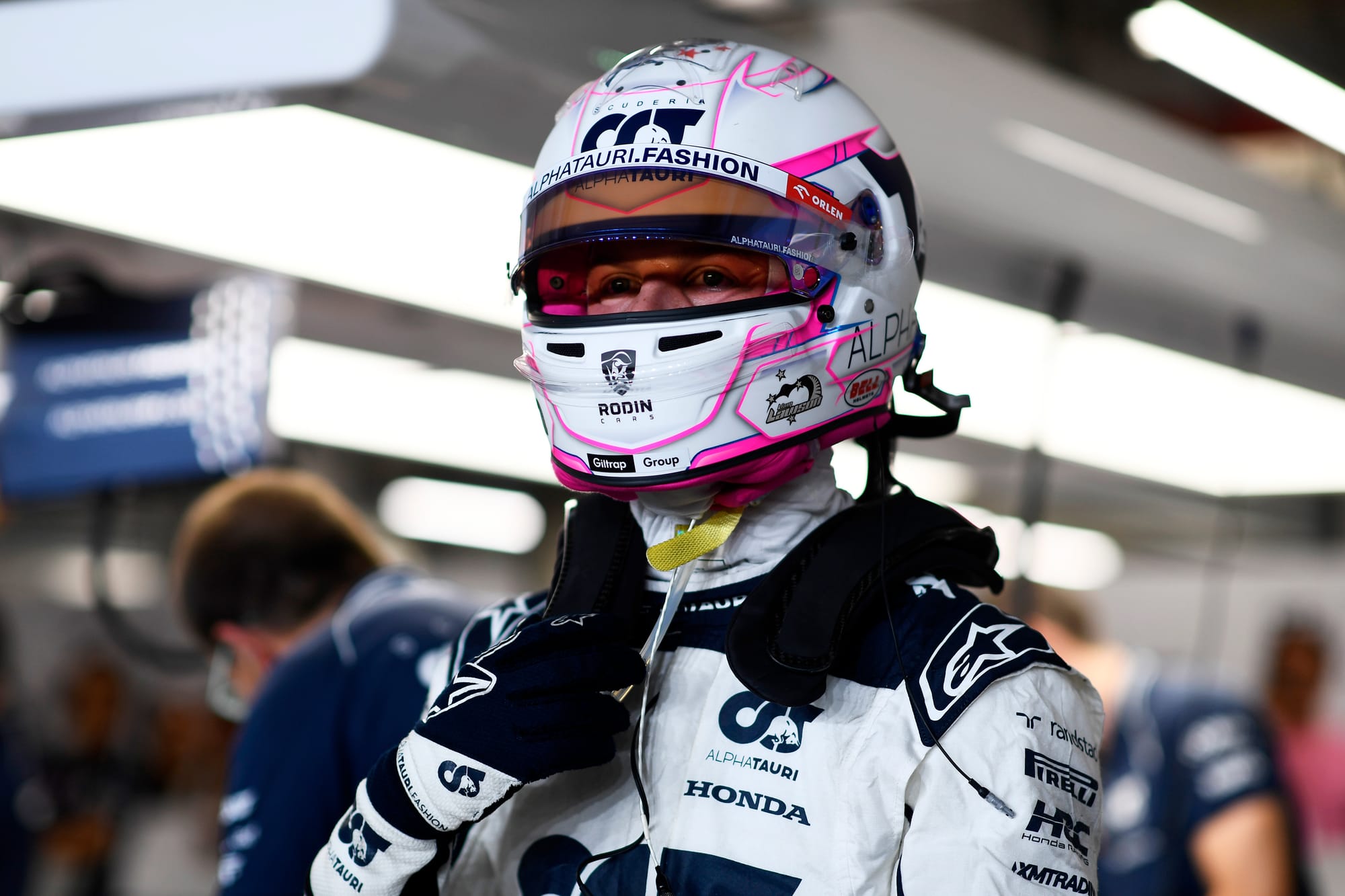
After coping well with being thrown in at the deep end in the wet at Zandvoort, Lawson made a big impression in the following three events in Italy, Singapore and Japan - taking his first F1 points for ninth at Marina Bay.
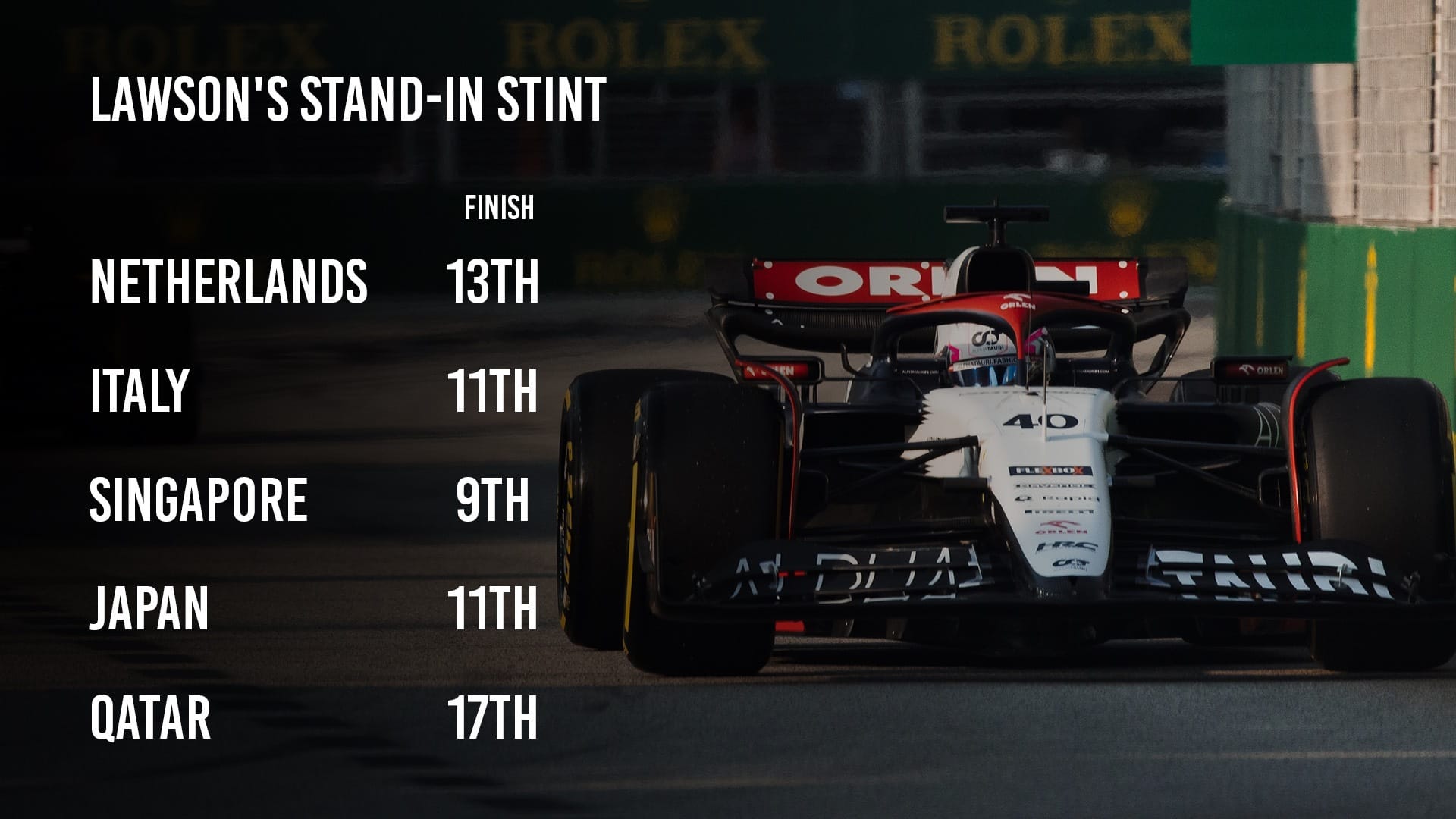
His stint ended poorly in Qatar. And that’s by Lawson’s own admission, saying: “It’s pretty disappointing to finish my run of races like this.”
But overall Lawson transformed his career by seizing his stand-in opportunity, which should ensure a full-time F1 seat down the line. Unfortunately, as he only had five weekends to make an impression, that denies him the chance to be ranked higher.
14 NICO HULKENBERG
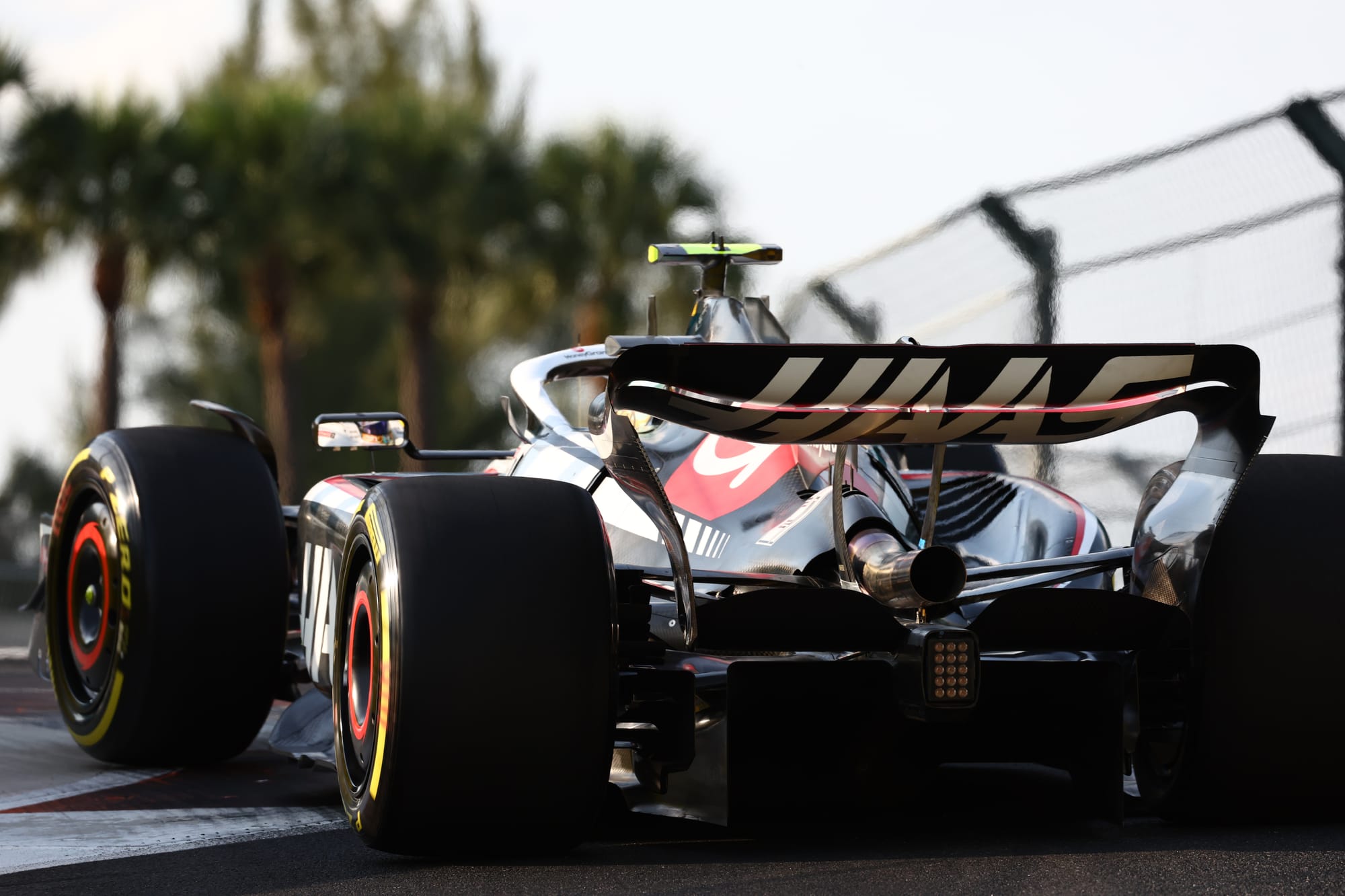
Were this ranking to be based solely on qualifying, Hulkenberg would surely be much higher. The trouble was that despite reaching Q3 eight times it was usually much tougher for him on race day.
That was thanks to the rapid tyre degradation experienced by the Haas VF-23. But Hulkenberg did seize a couple of opportunities, taking seventh in Australia and sixth in the rain-hit Austria sprint thanks to a switch to slicks.
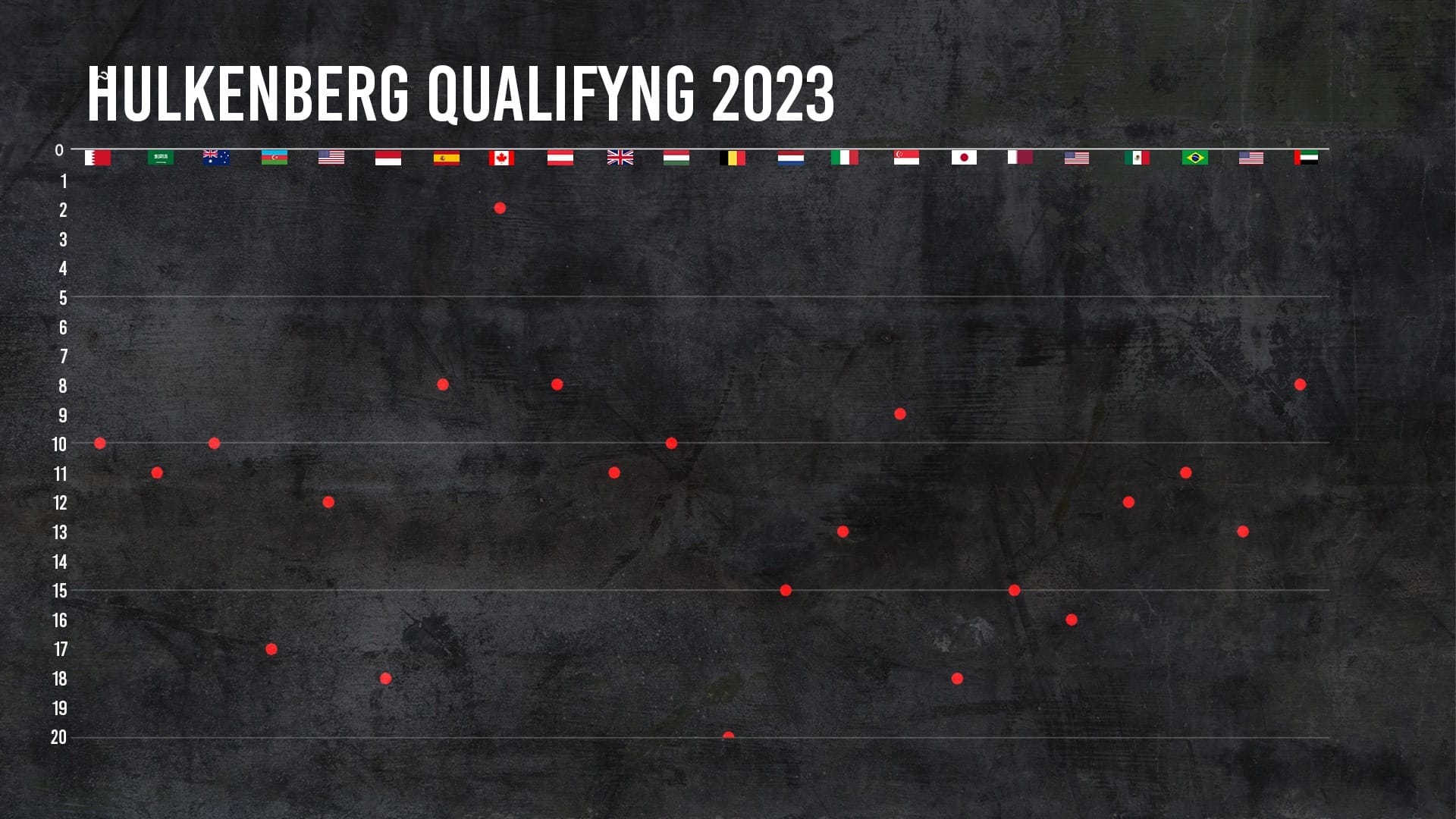
Generally, he was on a hiding to nothing on race day and that made it very difficult to make a good impression. But all things considered, Hulkenberg did a good job in very difficult circumstances and was by some margin Haas's strongest driver of the year.
13 SERGIO PEREZ
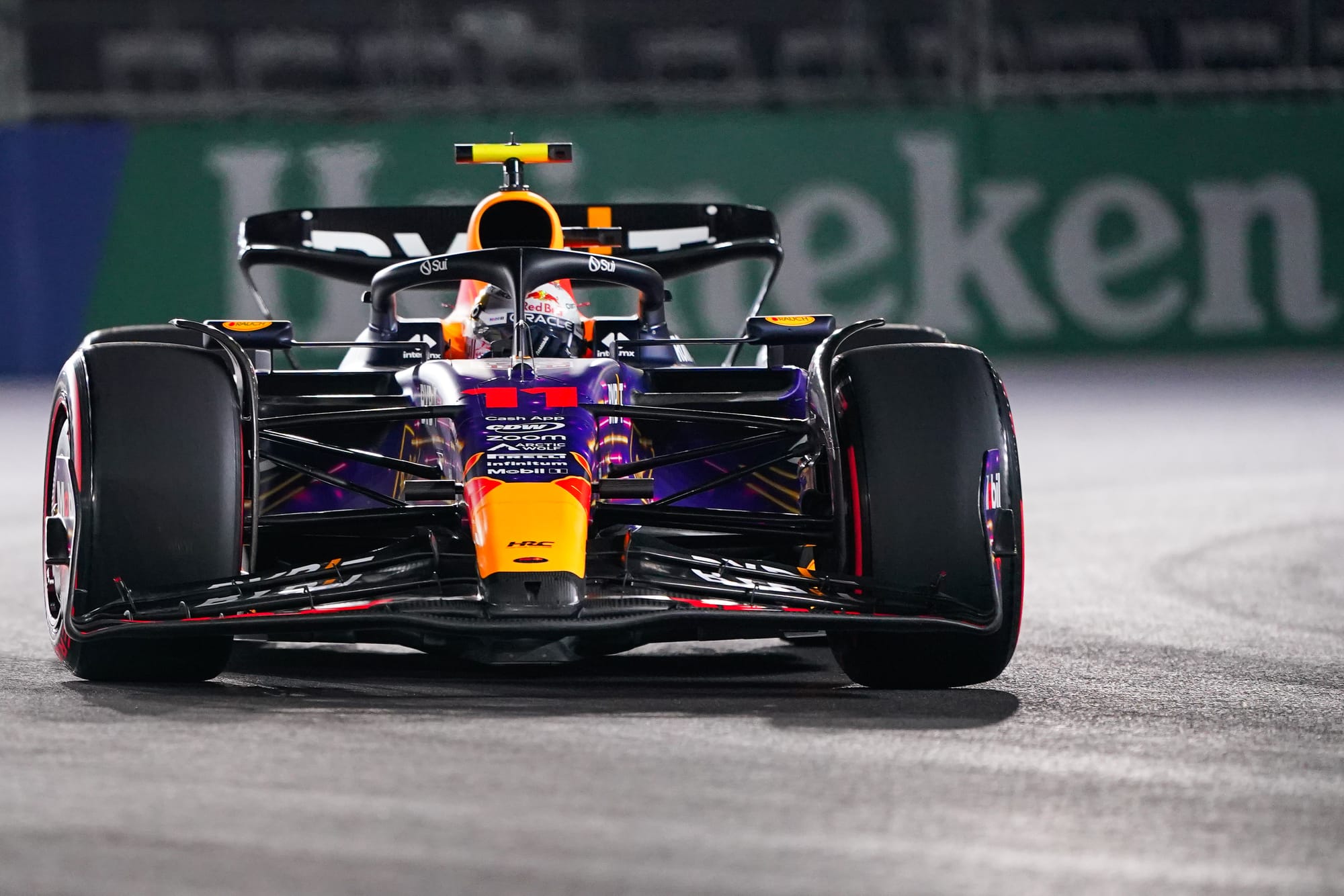
To rank Perez so low would have seemed inconceivable after his superb start to the season, where he won in Saudi Arabia and Azerbaijan. Unfortunately, that form proved unsustainable.
The simple fact is that when you are in a car capable of winning 21 out of 22 races but you only manage to be in the top two in qualifying six times and finish on the podium nine times, it has to be considered a mediocre season.
As Perez himself put it, “it’s been dominant for Red Bull, but it was quite tough for me”.
Yes, Perez finished second in the world championship and it’s well-known that he struggled with the handling characteristics of the car for much of the season. But the simple fact is that he had the opportunity to do far better than he did.
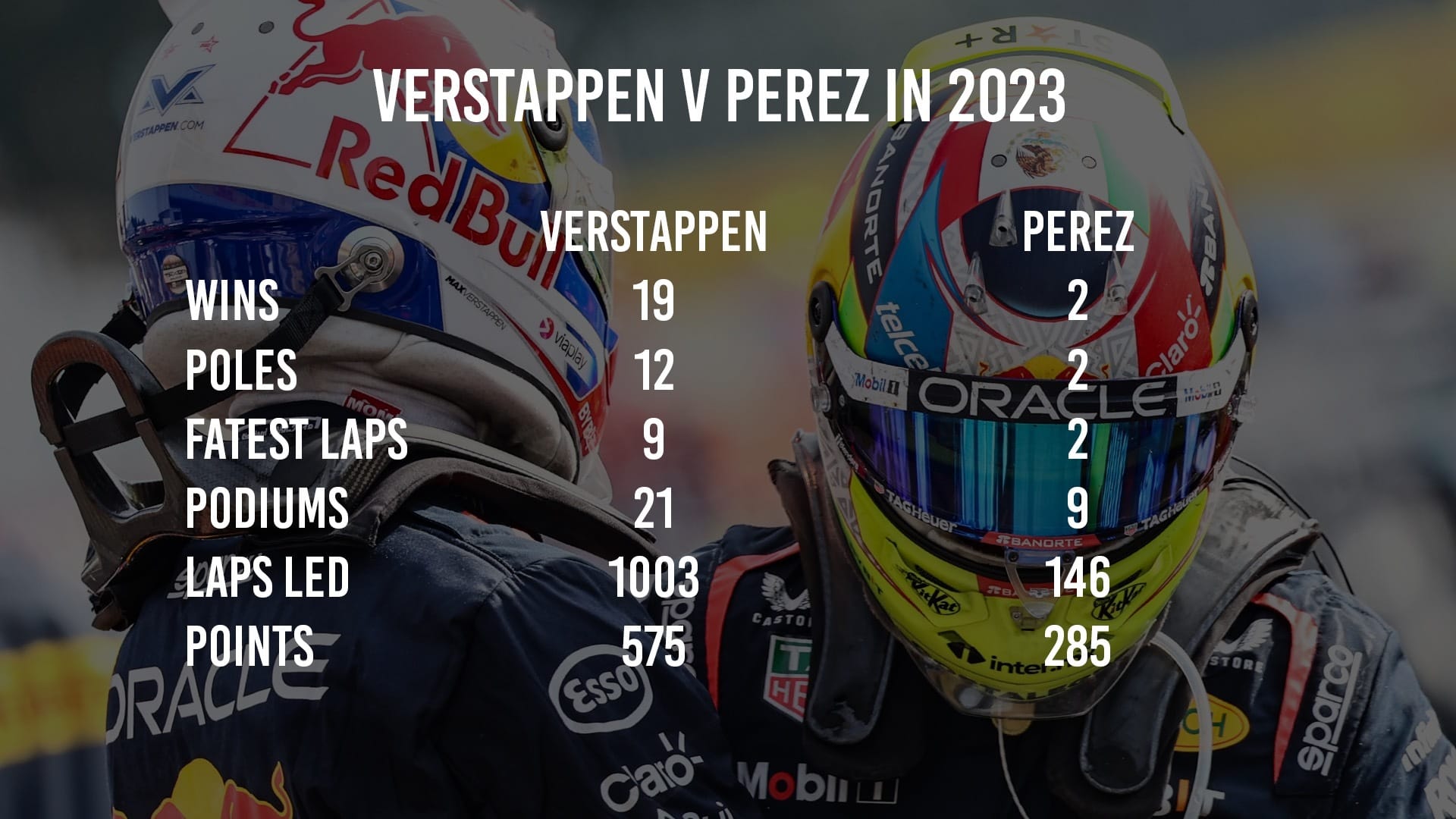
Ben Anderson on Perez's year: "Based on the first four races of the season he would have been unquestionably in the top 10 but the season isn't four races long, it's 22. And thereafter he was particularly underwhelming, certainly more underwhelming than he was last year when he made our top 10.
"When you delve into it deeper, even though he won two races and finished second in the championship, it's very hard to justify putting him in the top 10 which is maybe where people might expect he'd be."
12 YUKI TSUNODA
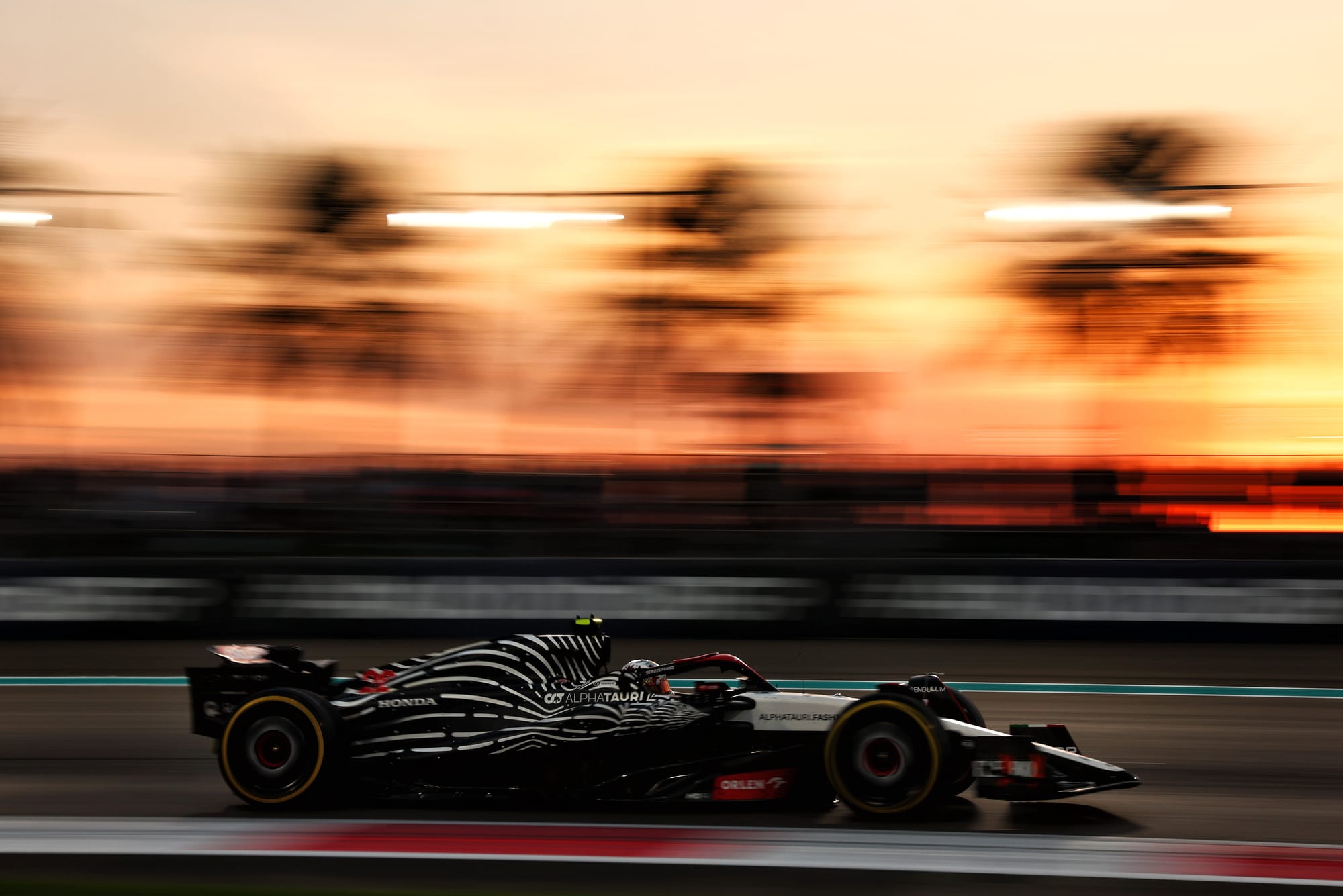
Tsunoda had by far his most consistently strong season in F1, having the edge on pace over all three of his team-mates and almost taking AlphaTauri to seventh in the constructors’ championship.
In particular, he was impressive early in the season when the AlphaTauri was at its worst - finishing 10th or 11th in the first five grands prix of the season. Later in the year, when the car was more competitive, he scored points in three of the final five events.
The trouble was that there were still mistakes. He was excellent in Spain, save for being suckered into forcing Zhou off track and earning a penalty that cost him a points finish, then in Mexico he was on a charge he believed could have netted fifth when he turned in on Oscar Piastri. There was the spin early in the race at Interlagos, too, which potentially cost him two more places.
But overall, he made a good step forward and was second-best of the five Red Bull drivers.
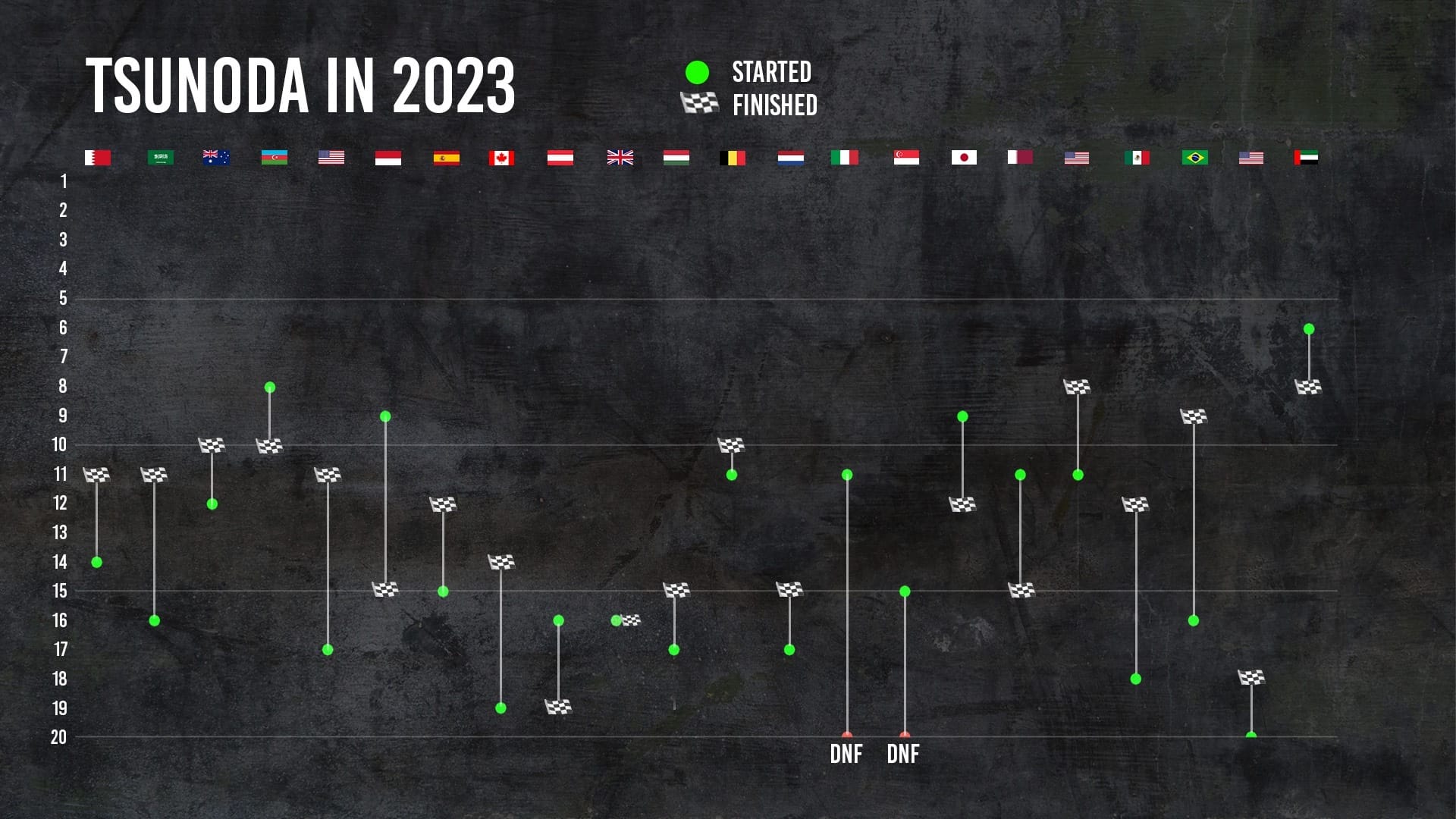
Ben Anderson on Tsunoda's year: "He was probably the most impressive non-Verstappen Red Bull driver of the year.
"You can make a fair argument for placing him above Perez in an overall ranking but across the full balance of the season with the ranging cast of team-mates, a couple of 'part-timers' who pushed him quite hard, he's probably not quite impressive enough to make the top 10."
11 ESTEBAN OCON
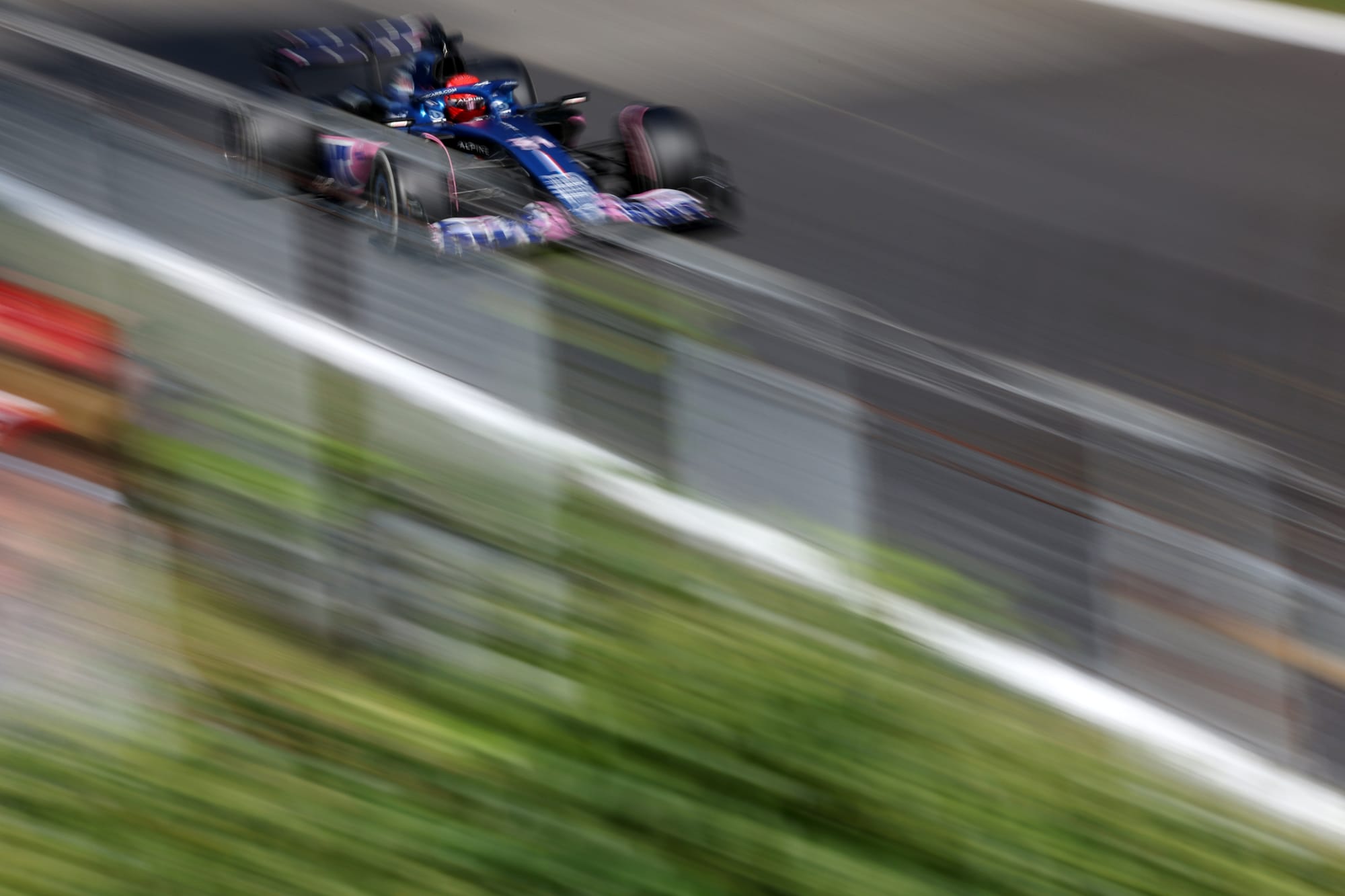
At his best, Ocon was outstanding. He was the star of the Monaco weekend, taking a stunning third place, and produced great performances in Spain, Canada, Singapore, Saudi Arabia and Las Vegas.
However, Ocon was a little erratic and over the second half of the season he seemed to lose the initiative to team-mate Pierre Gasly, who was usually the quicker of the pair.
Ocon bemoaned his bad luck in the later stages of the season, and it’s true he had some misfortune, but the overall trend in his team-mate’s favour means he just misses out on the top 10.
Mark Hughes on Ocon's year: "His performance hadn't dropped significantly from last year but just the way it played out, there were more drivers around who probably performed better than last year in that lower part of the top 10. He did a pretty solid job. He was outstanding in qualifying at Monaco which was the foundation for his podium.
"Whereas initially, he had the upper hand over Gasly, as the season wore on, Gasly tended to get on top. From Italy to Brazil, he was slower than his team-mate - not by much, but usually slower. It did seem as if the momentum was with Gasly. Not a bad season but he didn't quite make it [into the top 10]."
10 PIERRE GASLY
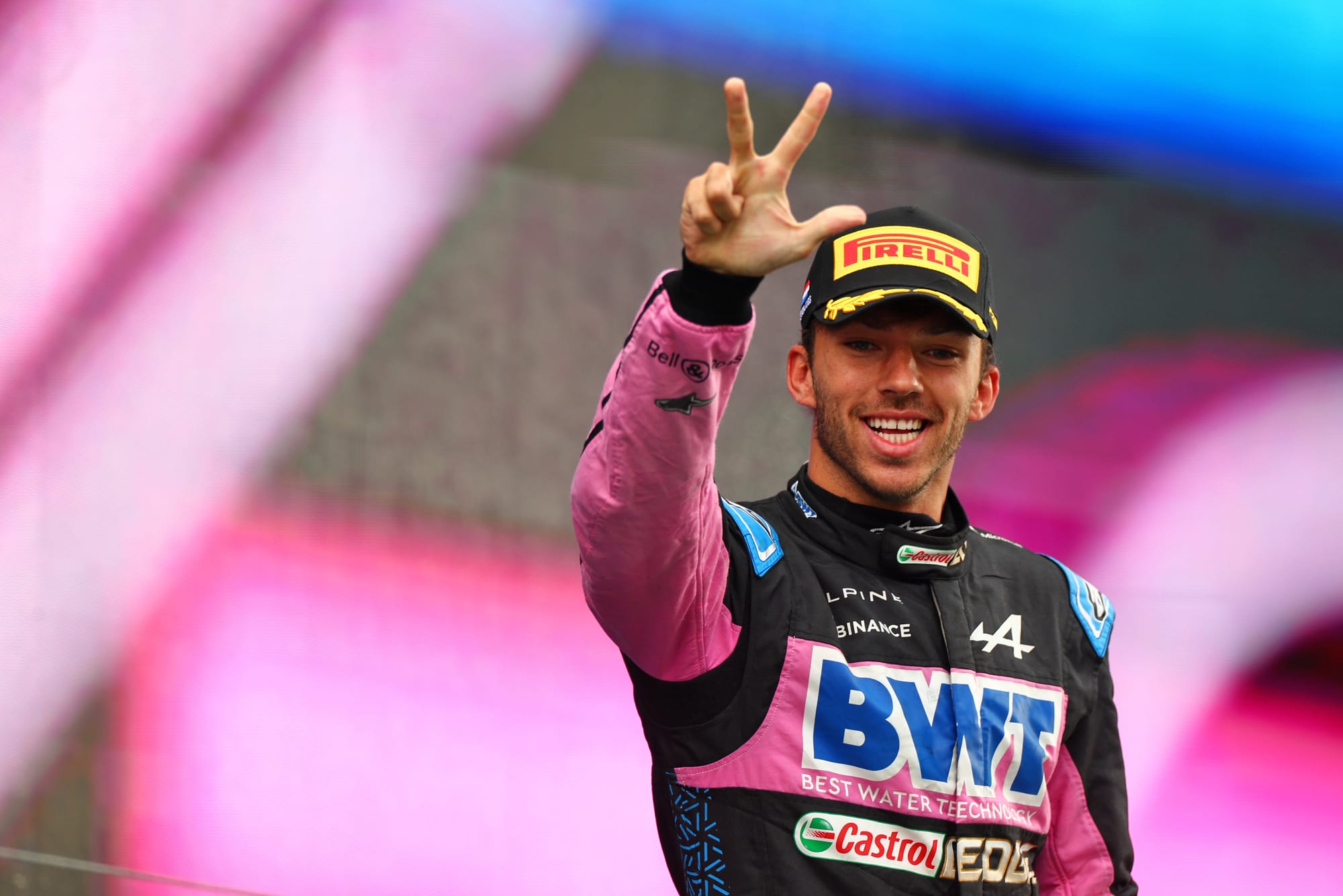
Gasly started the season a little ill-at-ease with the characteristics of the Alpine but still managed to be nip and tuck with team-mate Ocon in terms of performance, with the pair stacking up almost identically on average qualifying pace.
But once into the second half of the season, Gasly started to assert himself both over Ocon and in terms of steering the car set-up direction.
While his headline results were third places in the Spa sprint and the Dutch GP, his best work was probably late in the season - notably a superb Austin weekend to take sixth - as he potentially set himself up to be Alpine’s spearhead in 2024.
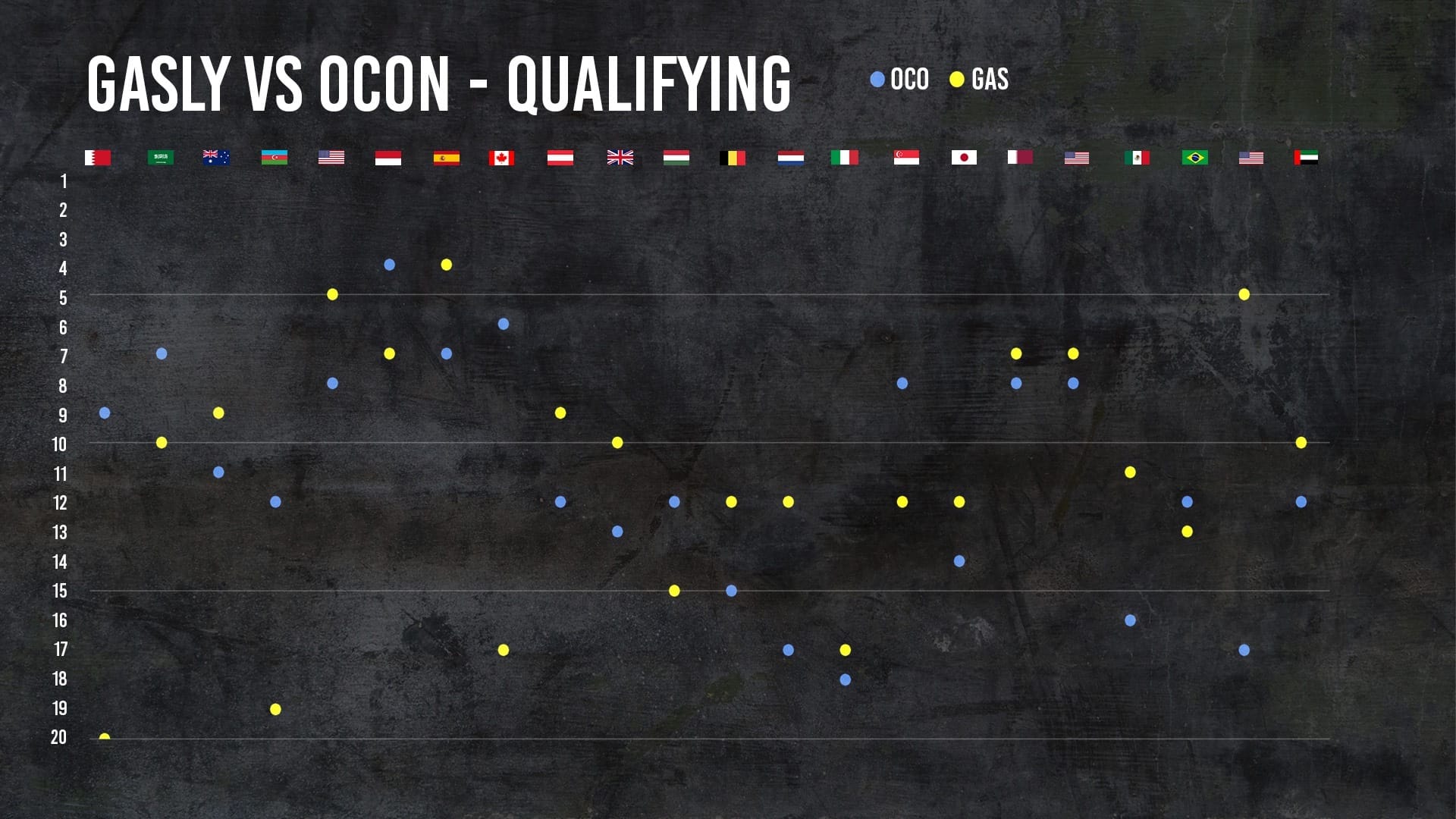
Mark Hughes on Gasly's year: "I was quite impressed with the way he came into a new team. Ocon's been there a long time, he knows how it works and it was a difficult car. It wasn't a car with a natural balance that was well suited to Gasly and there were times when we saw his temperament flair up as we've seen over the years.
"He did get his head down and he did gradually grind ahead through the season as the slightly faster Alpine driver. He did a very good solid job in a new set of circumstances."
9 GEORGE RUSSELL
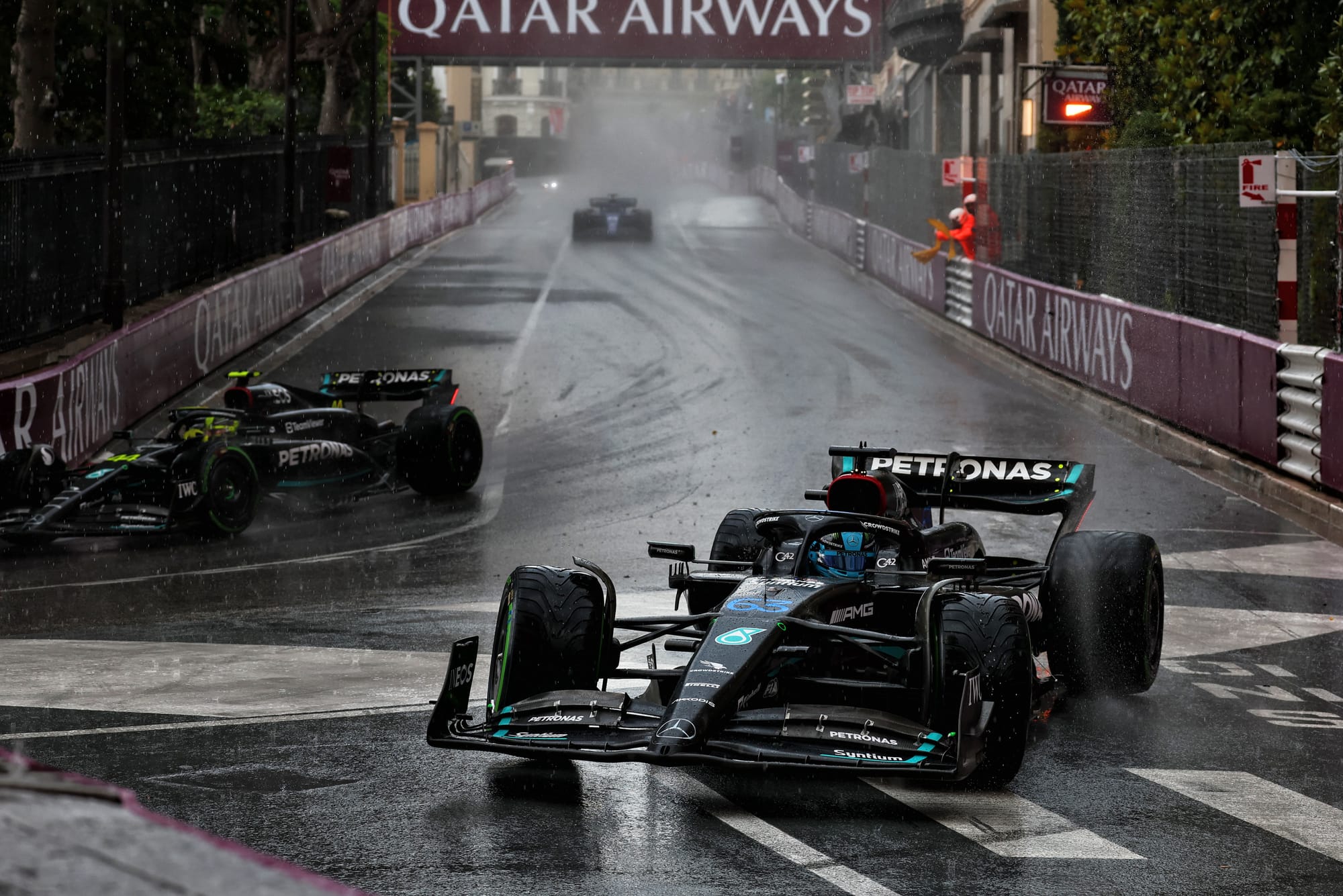
Russell himself characterised 2023 as “probably one of the worst seasons of my career in terms of results”. He described it as “a really scrappy, messy season” and he was right to say that because he made too many errors - an off in Monaco that cost a podium, crashing in Canada, hitting the wall on the last lap in Singapore and colliding with Max Verstappen in Las Vegas.
But there was also plenty of good too. On outright pace he was evenly-matched with Hamilton and he also had some bad luck, notably in the Australian GP where he was undone by a red flag and then an engine failure.
It was still a good campaign in terms of his performance, but one that just didn’t come together as it should have. And Russell has to carry some of the blame for that underachievement.
Ben Anderson on Russell's year: "Although he described it as his worst season ever, I think the underlying performance was pretty good; [on] pure pace, he seemed pretty much there with Lewis. Maybe marginally more impressive but it tended to fluctuate because the car was so edgy.
"He gets marked down for the big mistakes but maybe you could also say he's a little bit of a victim of Mercedes not kicking on as hoped. A decent season but probably not as impressive as last year. This season you could say Russell was marginally more impressive on the Saturdays compared to Lewis, and on the Sundays slightly more inconsistent."
8 OSCAR PIASTRI
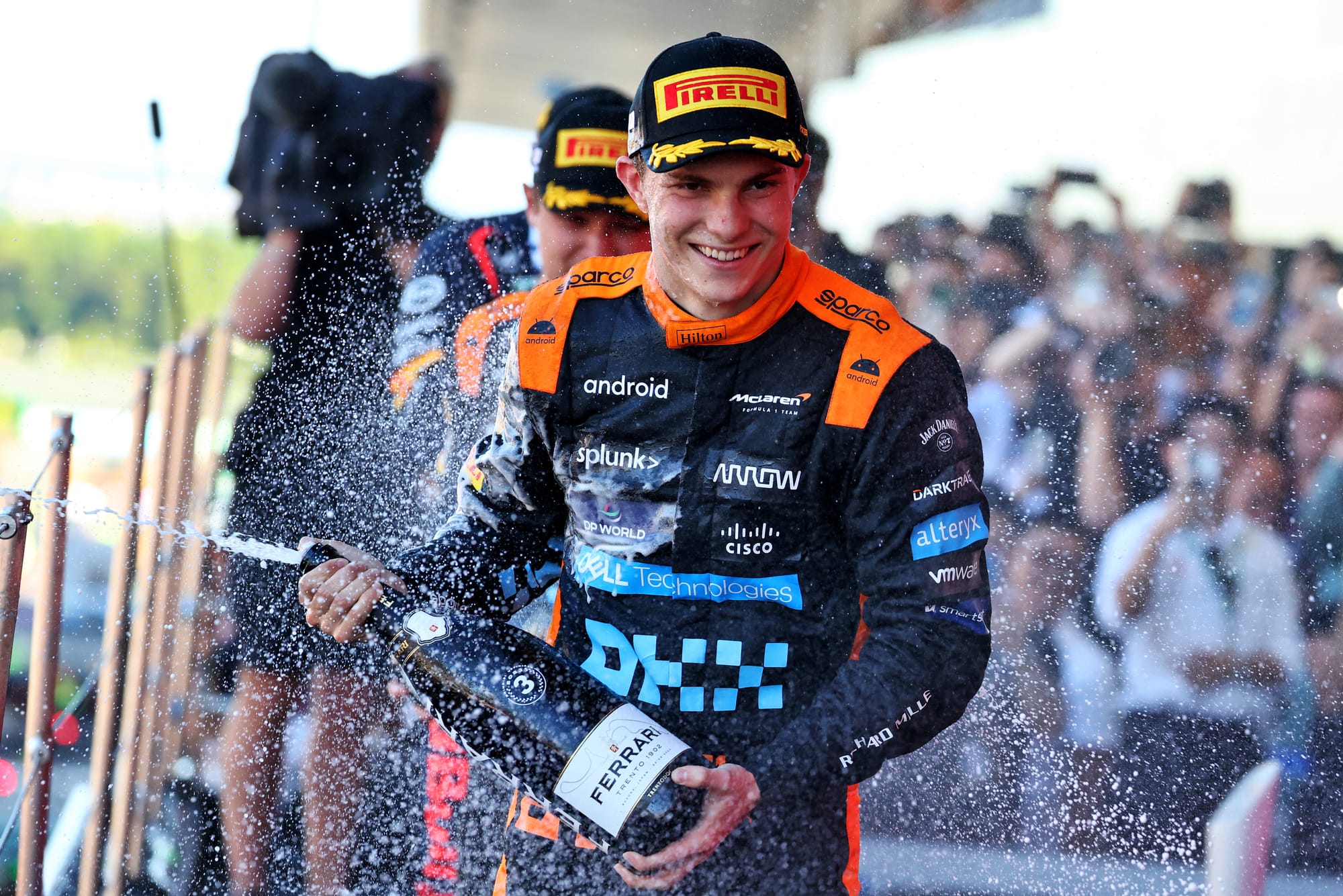
Piastri’s rookie status means he’s judged a little differently to the rest. As you’d expect, his was a season of peaks and troughs but overall he showed himself to be seriously quick and completely at ease at this level.
Right from the start, the speed was obvious even when it didn’t always result in stringing together a good qualifying lap. But after some low-profile but eye-catching performances early on he really started to make an impression once McLaren introduced its season-changing upgrades.
He deserved to score his first podium at Silverstone, but lost it to safety car timing, before later bagging a second and third place - as well as victory in the Qatar sprint.
His main deficit to Lando Norris was on race pace and that’s something he accepts he needs to work on. But his rookie season is a brilliant foundation.
Scott Mitchell-Malm on Piastri's year: "It was very, very good from start to finish. It was a little bit harder to see how good it was early on when he was settling into a very difficult McLaren to begin with and there were some circumstances in the races that held him back like the mechanical problem in the opening round in Bahrain and then in Saudi when a great qualifying performance was underdone by the first corner with some damage.
"Once the car started to get upgraded the impressive thing is that Piastri went with it. There was an instant production of a great performance at Silverstone and he got the podium that he so richly deserved there later in the year with two podiums and a win in the sprint race in Qatar. There were the usual issues of being a rookie, especially one who had been out of a racing car for a year in terms of racing. He wasn't particularly thrilled with his racecraft sometimes; it wasn't bad, it just wasn't stunningly good in the midfield early on. But it got better as the season progressed and one of his overtakes, on Gasly in Las Vegas, was one of my favourites of the year."
7 CARLOS SAINZ
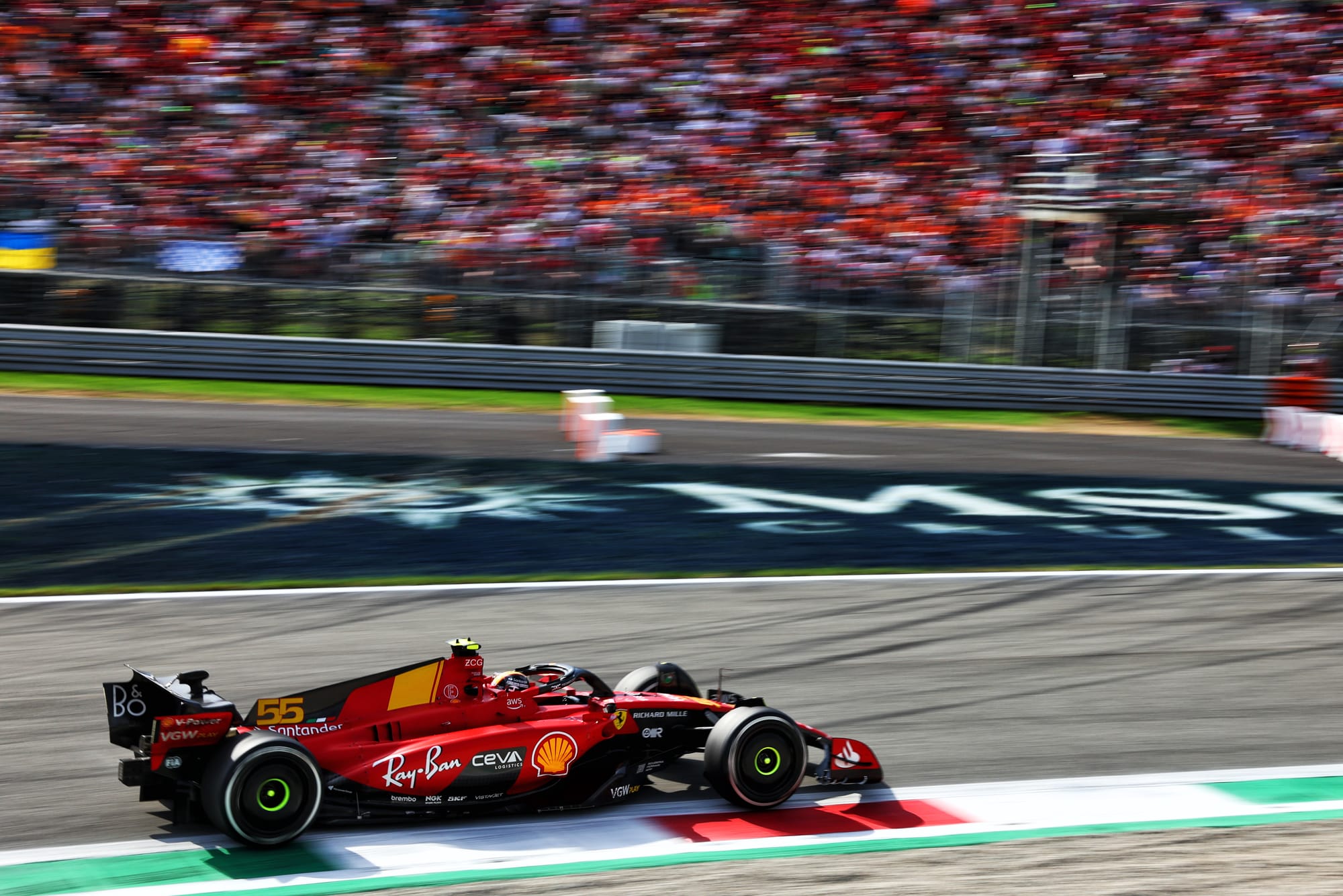
For three events after the mid-season break, Sainz was the best driver in F1 with an overachieving fifth place at Zandvoort, pole position and third at Monza, then of course his pole position and victory in Singapore.
There was plenty of good work supporting that but, generally, Charles Leclerc was marginally the faster Ferrari driver in 2023 and there were patchy phases of the season for Sainz with a bafflingly bad weekend in Baku, a costly mistake at the final standing restart in Australia, and a tough finale in Abu Dhabi.
But overall, he did an excellent job for Ferrari and caused plenty of problems for Leclerc.
Josh Suttill on Sainz's year: "What a rollercoaster year; the only non-Red Bull grand prix winner of the season and what a sensational mini-run he had after the summer break. If we're basing it on that short sample of races he'd probably be first or second but unfortunately, over the whole season, he was once again not quite as impressive as Charles Leclerc in both qualifying and the races.
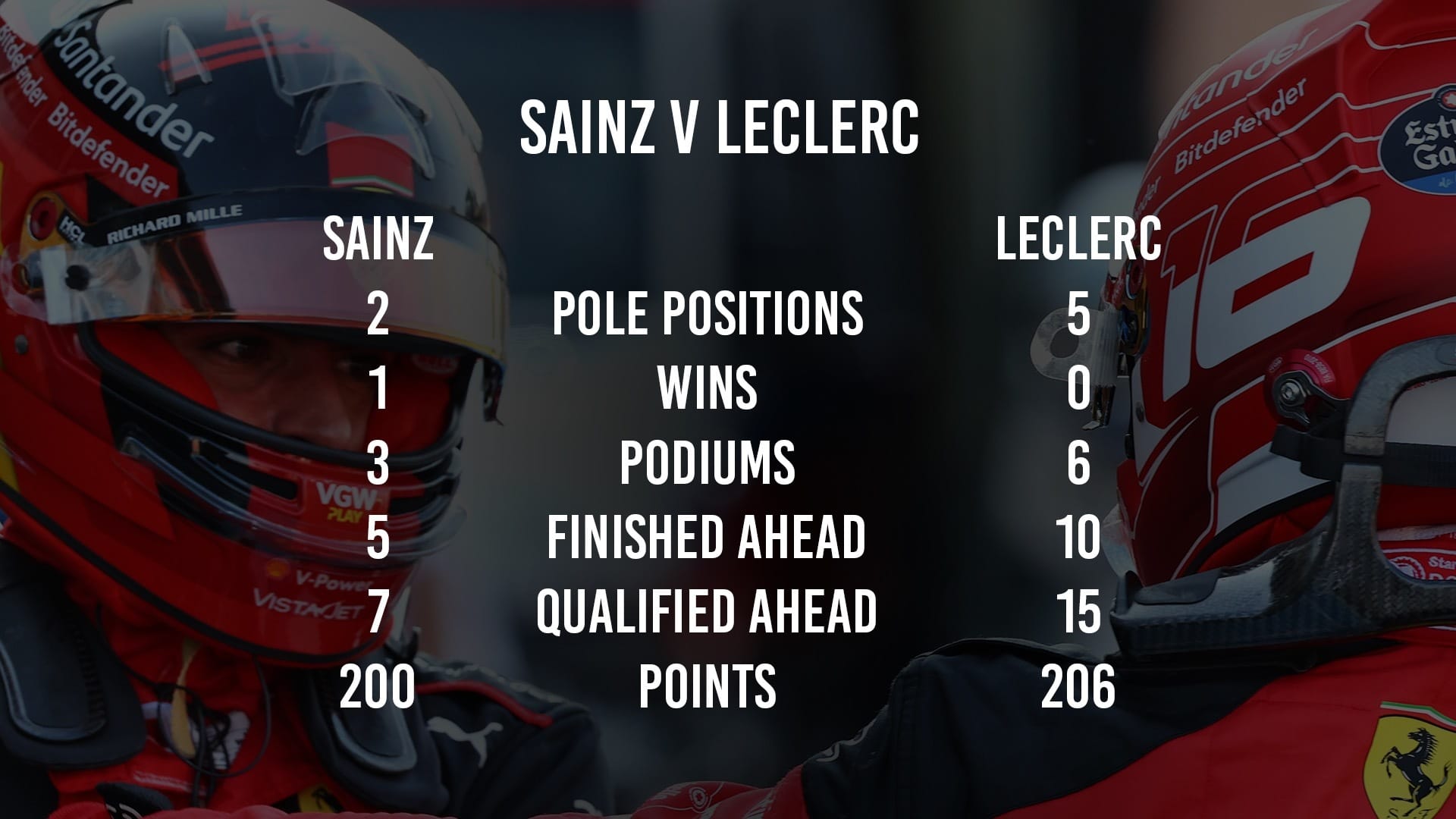
"There were quite a few messy weekends and even that good run was quite short-lived. That's what drags down his ranking because across Zandvoort, Monza, Singapore, he was sensational. I'd even say his Italian GP drive was perhaps even better than his win in Singapore, just the way he was able to defend so defiantly against the Red Bulls and then Leclerc. A real box-office reminder of his talents but unfortunately, as in previous years, he's not able to sustain that level across the whole year."
6 ALEX ALBON
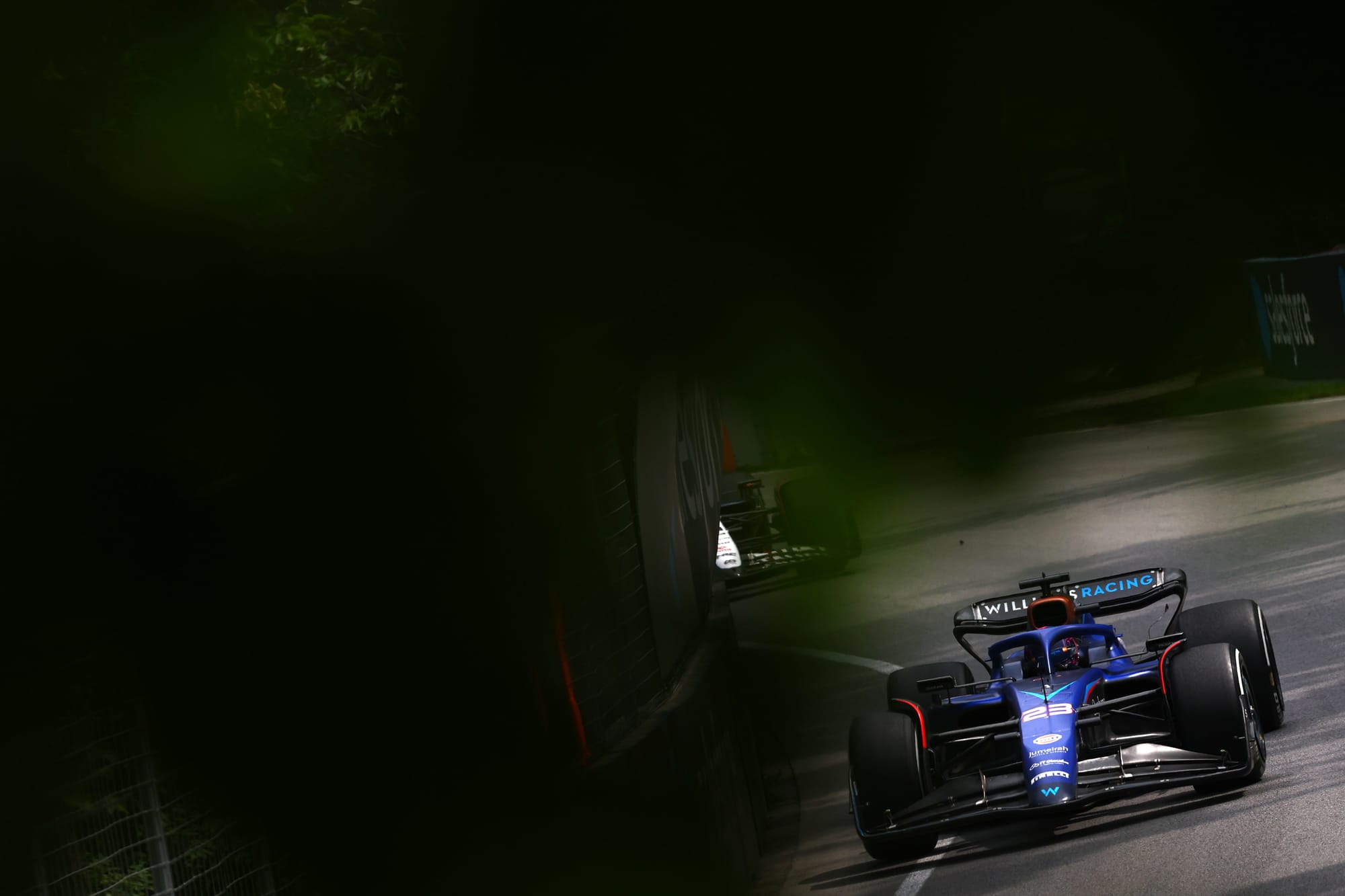
Albon single-handedly took Williams to a lucrative seventh in the constructors’ championship, consistently dragging the best from a car that was one of the weakest, and most erratic, on the grid.
He scored 27 of Williams’s 28 points and was the by far strongest driver across the season of those in the four-team group at the back battling for seventh, eighth, ninth and 10th places.
As his ranking here reflects, he was one of the best drivers of the season given that so often to get those results he had to put in drives that defied competitive gravity - such as in Canada, where he held off the faster Ocon and a queue of others to finish seventh.
Save for Australia, where he crashed out of sixth place, he kept mistakes to a minimum and has attracted the attention of plenty of rival teams as they consider their 2025 driver line-ups.
Mark Hughes on Albon's year: "A fantastic campaign. If you look at that bunch of cars fighting at the bottom for seventh, the cars were so closely matched in race pace the only thing to separate them was the driver and Albon was by far the outstanding driver out of the group of four teams.
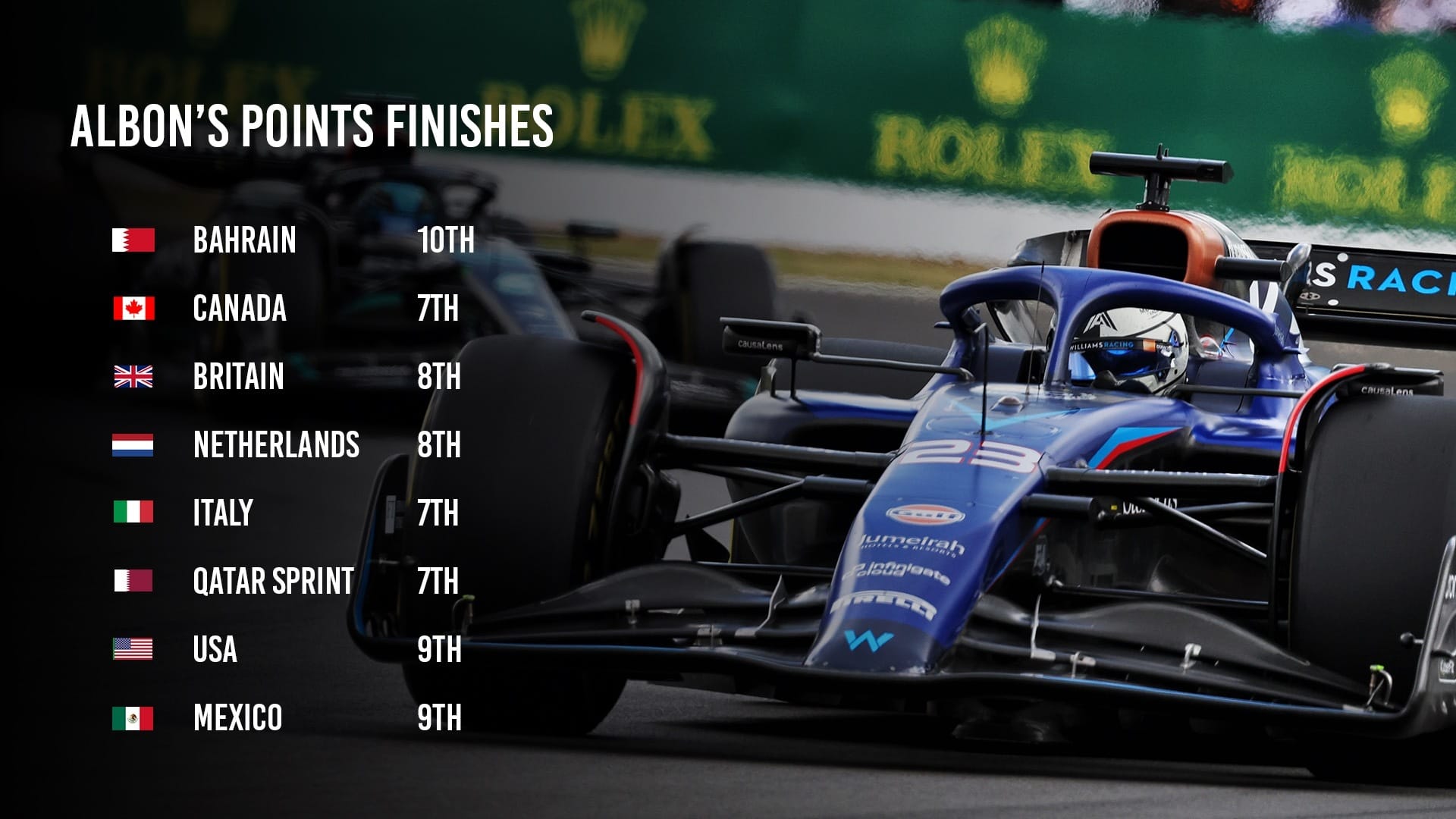
"He was absolutely crucial to nailing those high-pressure laps, I'm thinking of Zandvoort in particular. He was very impressive and he really gave the team a lot of leadership as well, he was making a lot of the calls which the team really did find inspiring. It gave them confidence and they began to operate in a way which looked much less scrappy than in previous years and Albon was a big part in giving everyone that confidence."
5 LEWIS HAMILTON
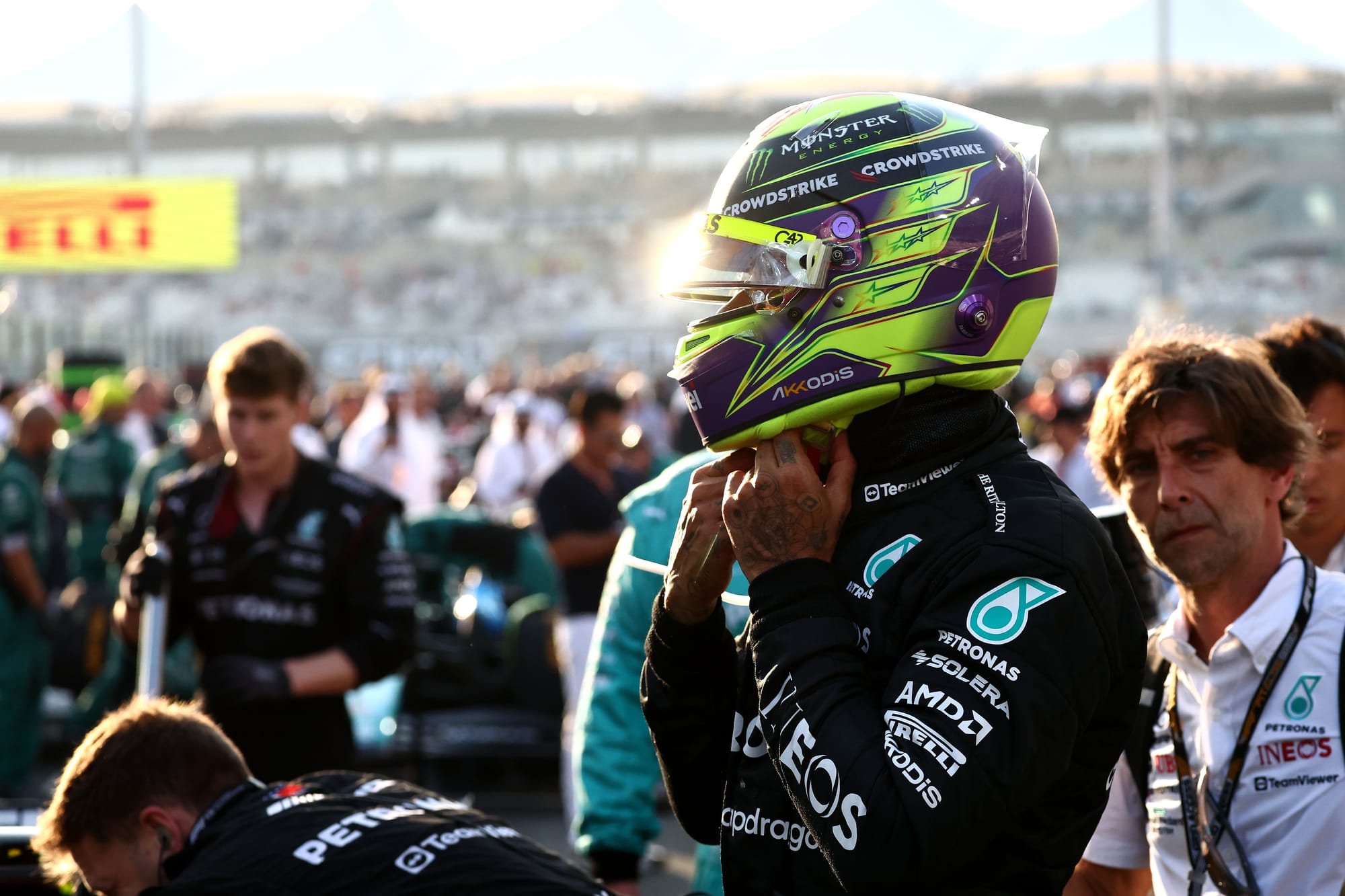
Hamilton came close to finishing second in the championship off the back of what was more a series of consistently good race performances rather than reaching the heights that he is capable of. That’s because of the capricious Mercedes W14 that prevented him from doing his best work.
By his own admission, qualifying was often a struggle due to the lack of confidence in the rear end of the car. There were moments when that improved, notably at Austin where he was superb but ultimately excluded for illegal plank wear, but the fact it was relatively evenly balanced showed that on single lap pace the two Mercedes drivers were evenly matched.
But like the experienced pro he is, Hamilton rarely had genuinely bad weekends - Qatar, where he turned in on Russell and eliminated himself from the race, was the low point - and despite his head regularly dropping he kept racking up the points. But he did have a subdued end to the season with eighth in Brazil, seventh in Las Vegas and ninth in Abu Dhabi.
However, on the rare occasions when the Mercedes worked well, he reminded everyone the magic is still there.
Ben Anderson on Hamilton's year: "What to make of Lewis's year? Broadly similar to last season, the fact he's only one place down [on where we ranked him last year] tells you quite a lot. There were moments where you felt like it was clicking again and he's motivated but then there were times, particularly at the end of the season, where it's all just getting to him and he's not quite phoning in it, but certainly asking himself whether it's all worth it.
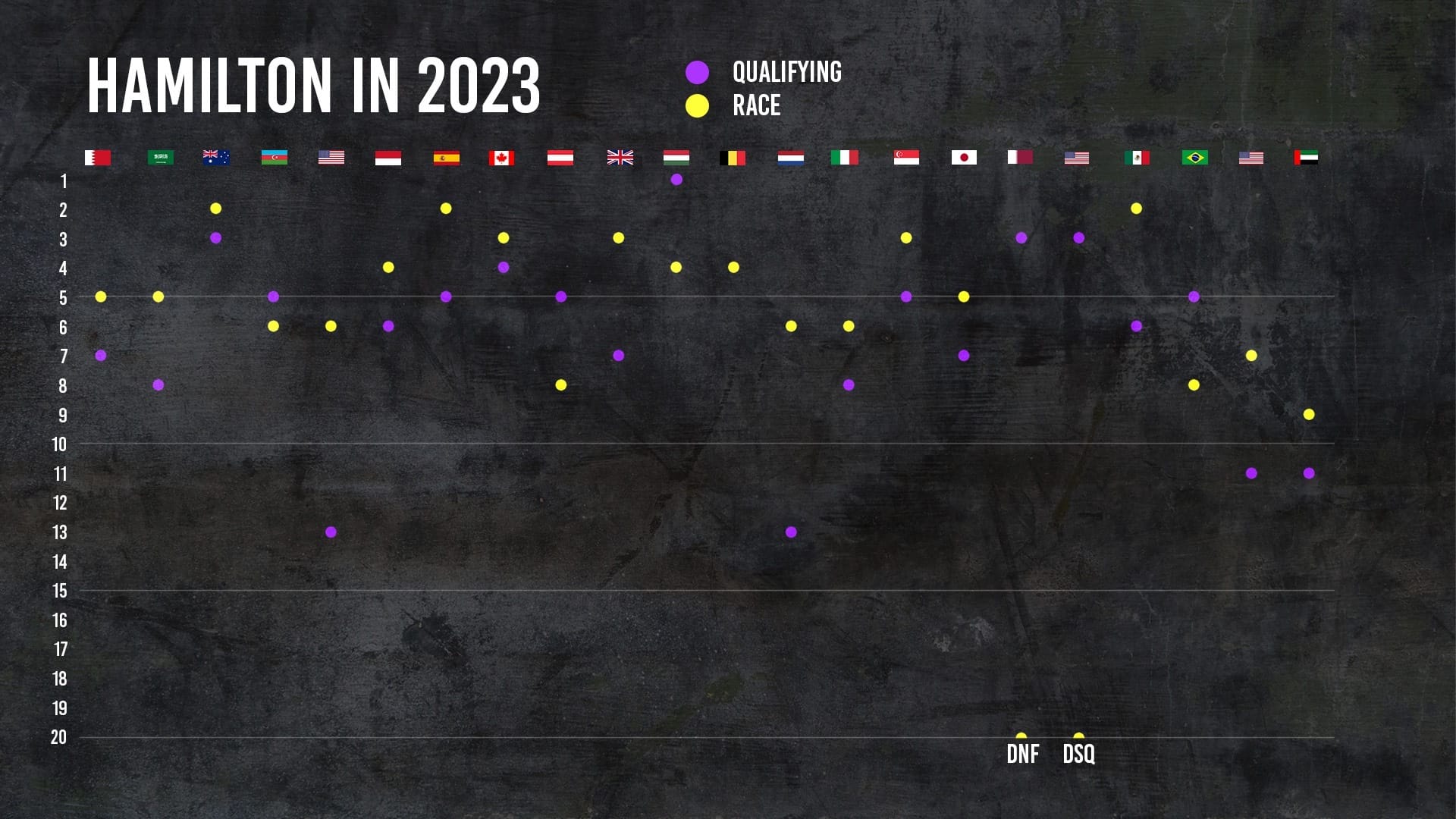
"The great driver we know is still there but I feel like he's become a bit more limited by the car than maybe you'd expect based on history. He's seemed more perplexed by this year's Mercedes than last year's. You're almost waiting for the real Lewis to return and I'm not sure if we're going to see it - it's going to be dependent on whether the rejigged Mercedes comes out firing on all cylinders next season."
4 LANDO NORRIS
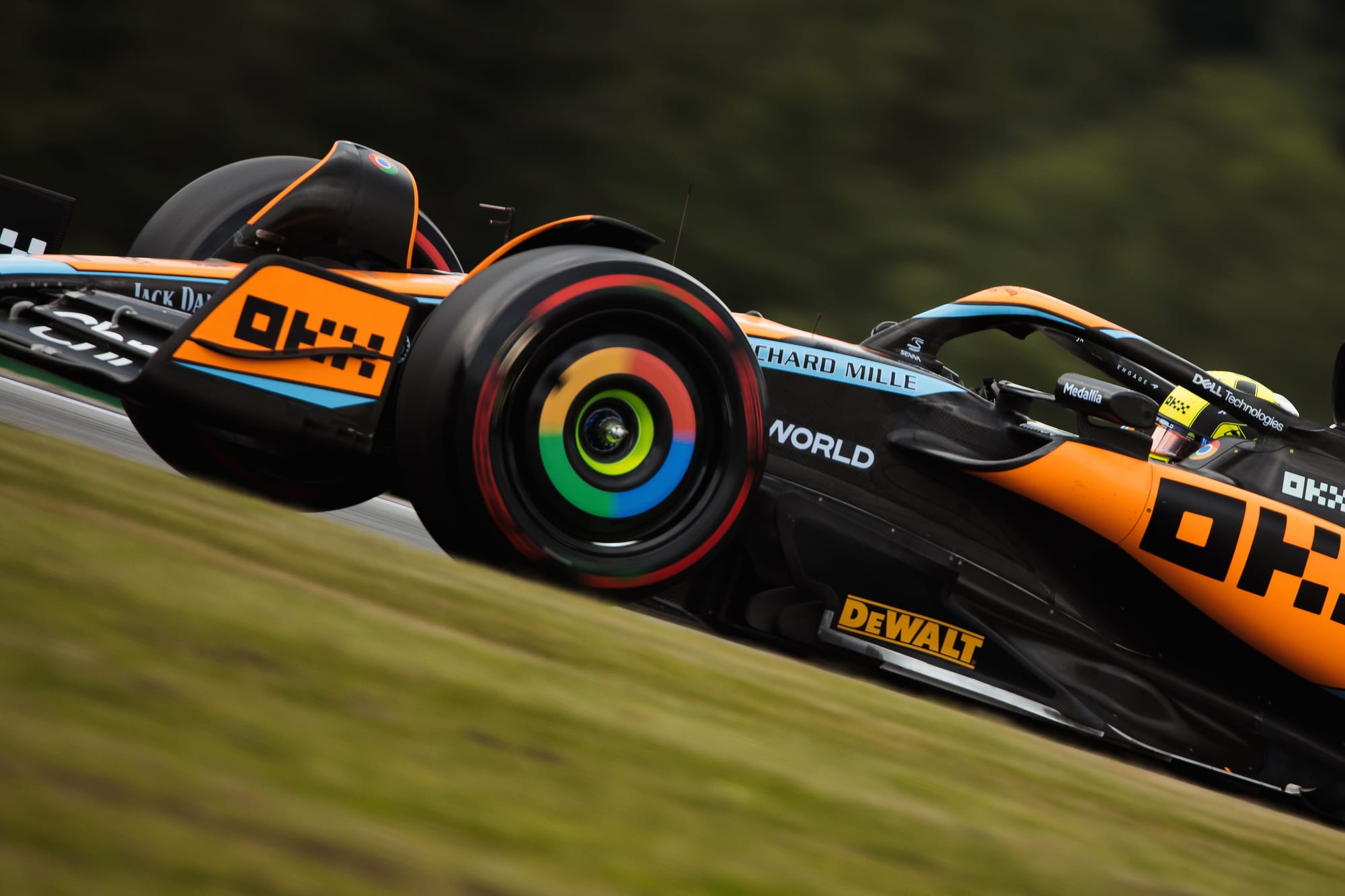
While there are legitimate question marks over his qualifying errors - as Norris himself made very clear on several occasions - Norris excelled on race day in 2023. That earned him seven podium finishes, but not that elusive first F1 victory.
Piastri was able to push Norris in qualifying. That said, the McLaren was also a tricky car so it’s difficult to unravel how much Norris’s series of qualifying errors were down to him and how much were down to the inevitable challenges of driving a knife-edge car on the limit.
However, for all that Norris was still overall the quicker driver in both qualifying and, in particular, on race day. Over race stints he had a clear advantage in terms of tyre management when degradation was a challenge, regularly taking the best-possible result.
In a race-winning car, there’s no doubt he will take plenty of victories.
Scott Mitchell-Malm on Norris's year: "Too many errors on Saturday to challenge for second on this list for me. Off the top of my head, it felt like the most mistakes he's made in a season in meaningful sessions whether it's qualifying or the race.
"Some of his performances on Sundays were absolutely extraordinary, whether that was a relatively straightforward drive from the front of the grid to a podium to a best-of-the-rest result behind Max or whether it was charging drives back up the order like when he underperformed in qualifying in Qatar or his Q1 exit in Mexico.
"It wasn't an easy car to drive or get the results that Norris achieved out of it. This was almost as good a season as you can expect from him. His [equalling of the] record for the most podiums without a win doesn't do him justice."
3 CHARLES LECLERC
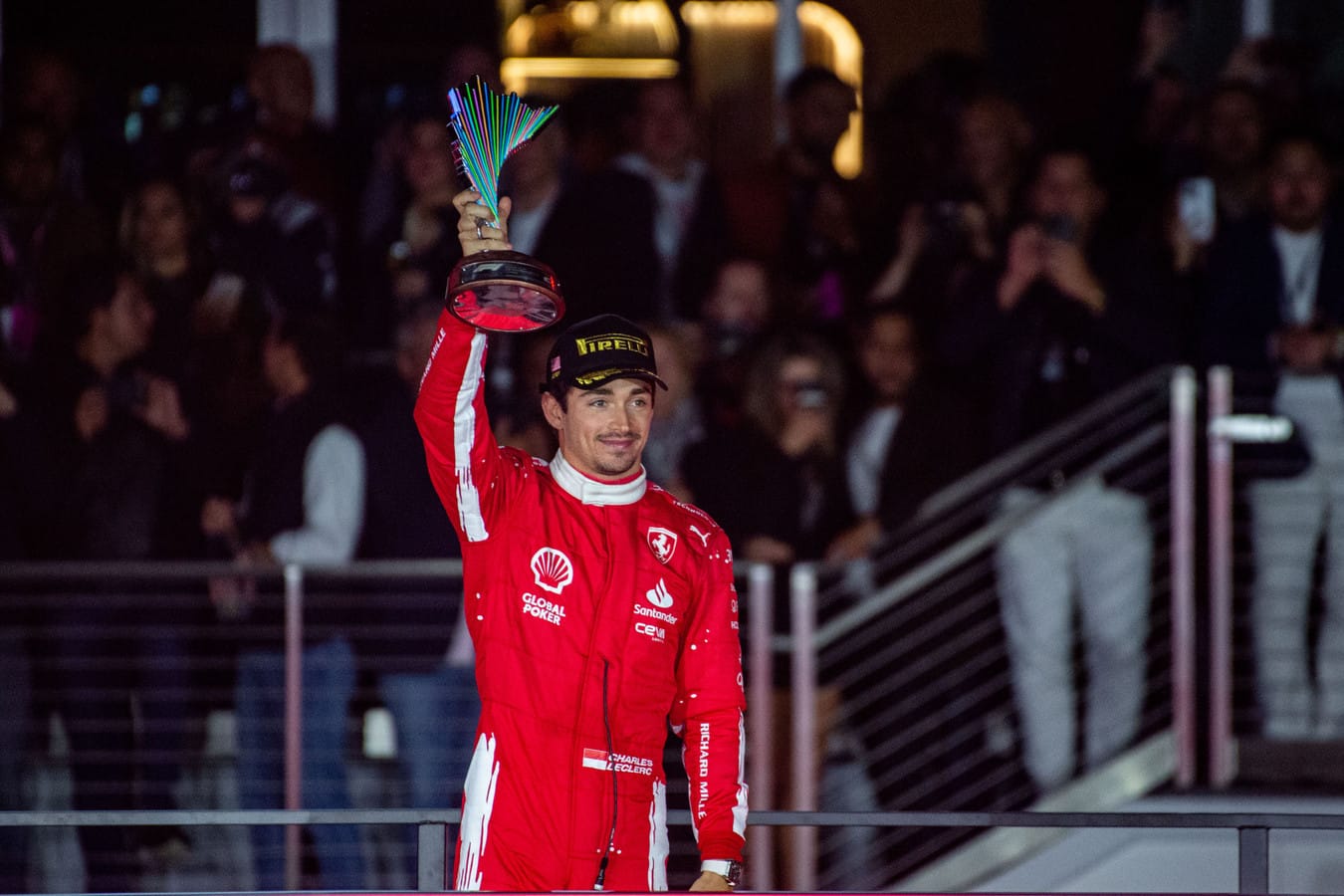
There’s a perception that Leclerc only really hit his stride in the closing stages of the season, and it’s true he was at his outstanding best once Ferrari had introduced a floor upgrade at Suzuka that made him much more at ease with the car.
But there was more to his season than that final third of the campaign. Although there was a spell when Sainz had the advantage thanks to the car having to be set up with an understeer balance, Leclerc was the stronger Ferrari driver over the balance of the season.
He had a strong start, too, performing well in Bahrain and Saudi Arabia but being undermined by reliability problems and grid penalties. And although there were occasional bad weekends, notably Spain, Miami and Australia, there were also five pole positions and a string of excellent race drives.
Mark Hughes on Leclerc's year: "I thought he pulled off some extraordinary performances in qualifying that really flattered the car and he was occasionally able to hang onto those performances in the races. It was a much trickier car, less competitive than last year's. He was probably trying to do the impossible even more often than he already was. But he would pull it off quite often.
"His level over one lap was the foundation of his season. He's got an extraordinary ability to put a car that's a little nervous right on the edge over one lap and that was a very valuable asset in that group Ferrari was in. He often made the difference."
2 FERNANDO ALONSO
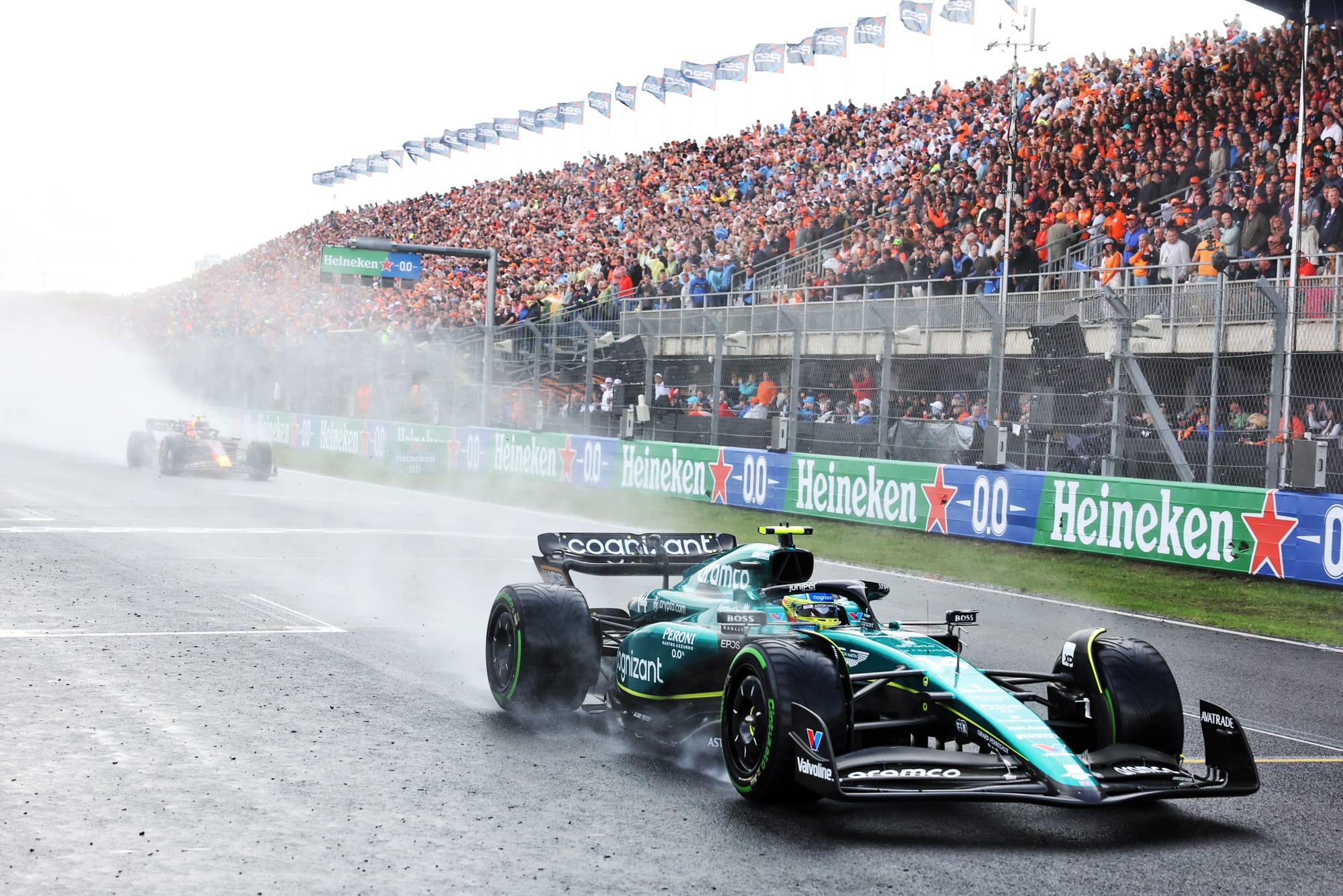
Alonso made a mockery of Alpine’s concerns about his age by performing superbly for Aston Martin, taking eight podium finishes and producing some of the most intelligent and well-executed race drives of the season.
The way he outthought Perez for third place on the final laps at Interlagos typified what Alonso delivered on race day and he remains one of the most innovative and improvisational drivers in battle. And even when the Aston Martin was off it, such as at Monza, he still dragged what he could from it.
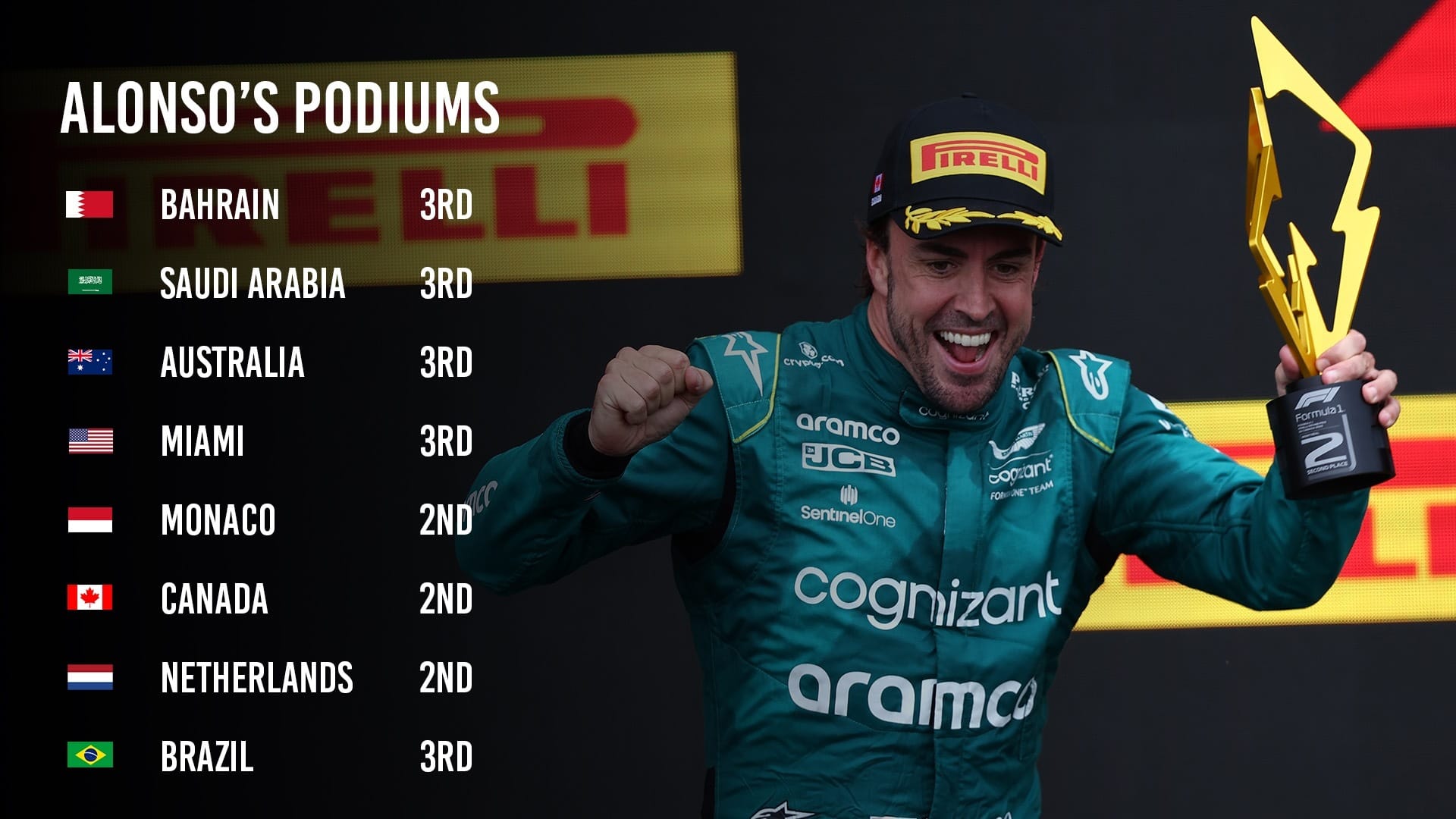
There were a few occasions when his frustration got the better of him, notably with a difficult Mexico weekend, and he made an uncharacteristic misjudgement at the first corner at low-grip Las Vegas. But by and large, he was a consistent force.
And but for a few hundredths in qualifying, or a switch to intermediates rather than slicks at his final stops, he might have won in Monaco.
Scott Mitchell-Malm on Alonso's year: "The best way to distinguish Alonso, Leclerc, Hamilton and Norris is to look at how often over the course of the year they had the second-best car. That to me speaks volumes to the job Alonso did this season.
"He really over the full season of races has no business being fourth in the drivers' championship and having the results he had, including on Aston's weekend of weekends in the second half of the year in Brazil, managing to outthink and outfight Perez to grab a podium there.
"Alonso probably had F1's second-best car for one quarter of the season and he had one of the three or four best cars for maybe a third of the season. Then the rest of the season he had a distinctly average, marginal top-10 car, that even occasionally fell behind Alpine on an off-weekend."
1 MAX VERSTAPPEN
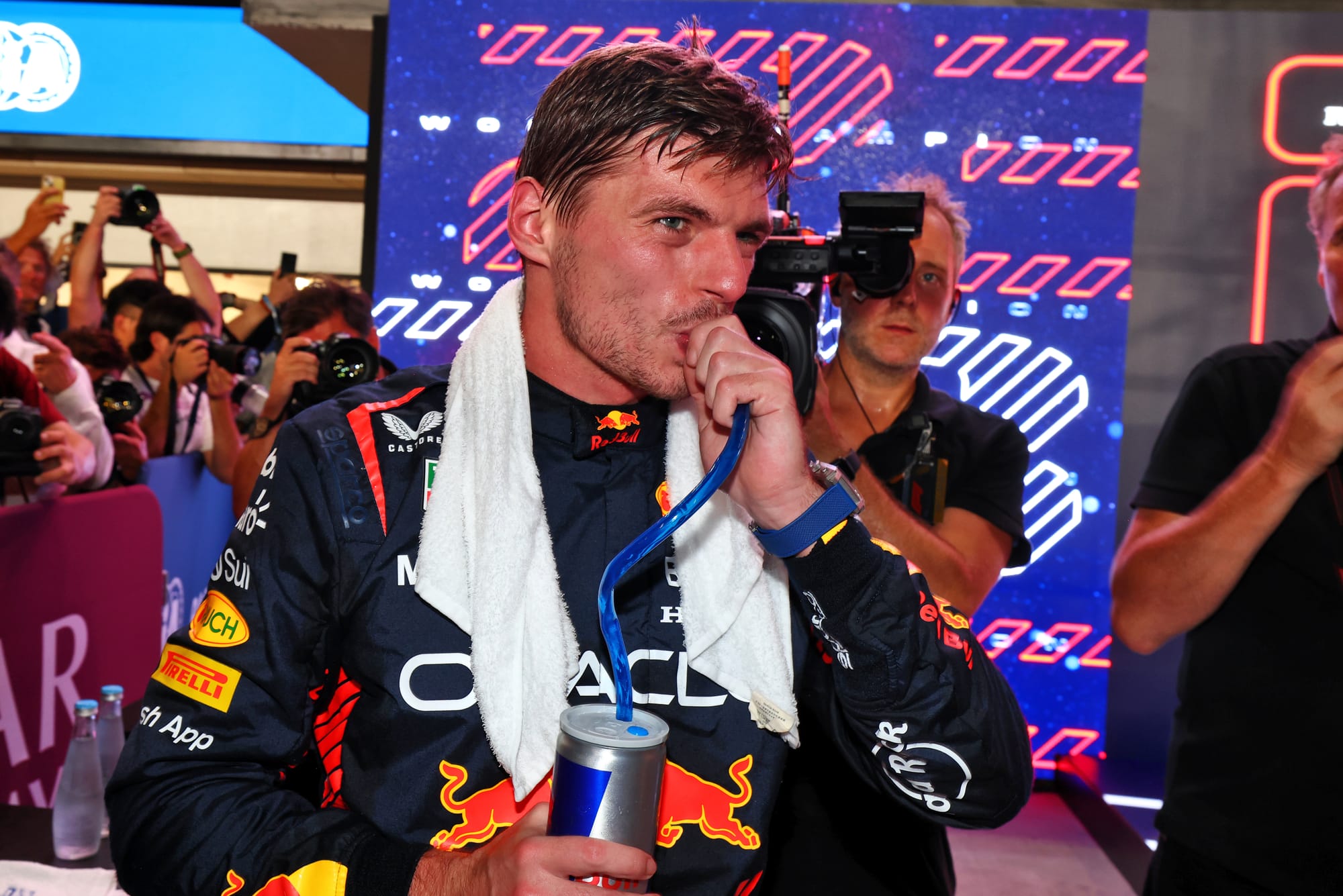
Yes, the Red Bull RB19 was the dominant force but Verstappen used it to exquisite effect to win 19 out of 22 races.
The comparison with team-mate Perez, a very capable and proven grand prix driver, was proof that simply sitting in an RB19 wasn’t enough to guarantee a string of wins. Verstappen’s ability to handle a fast-but-tricky pointy car bears comparison with Michael Schumacher and it was that capacity that allowed Red Bull to extract increasing pace from the car.
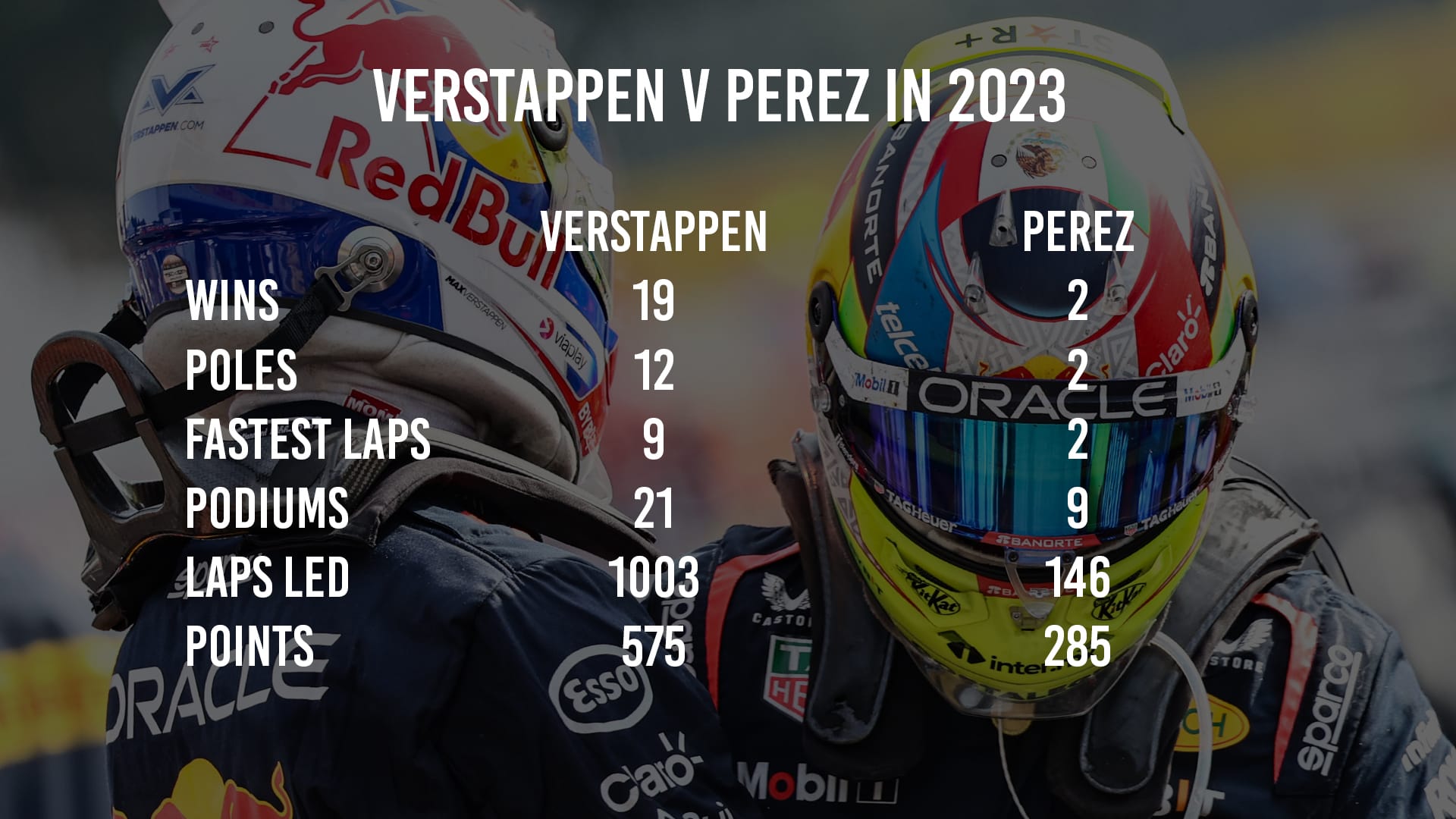
He was also masterful when it came to tyre management, efficient in qualifying even when tyre warm-up troubles meant others were stronger, and rarely made mistakes.
Being at the front made it easier for Verstappen, but it was everything he did to get there and the way he made the most of every opportunity that made his season a brilliant one.
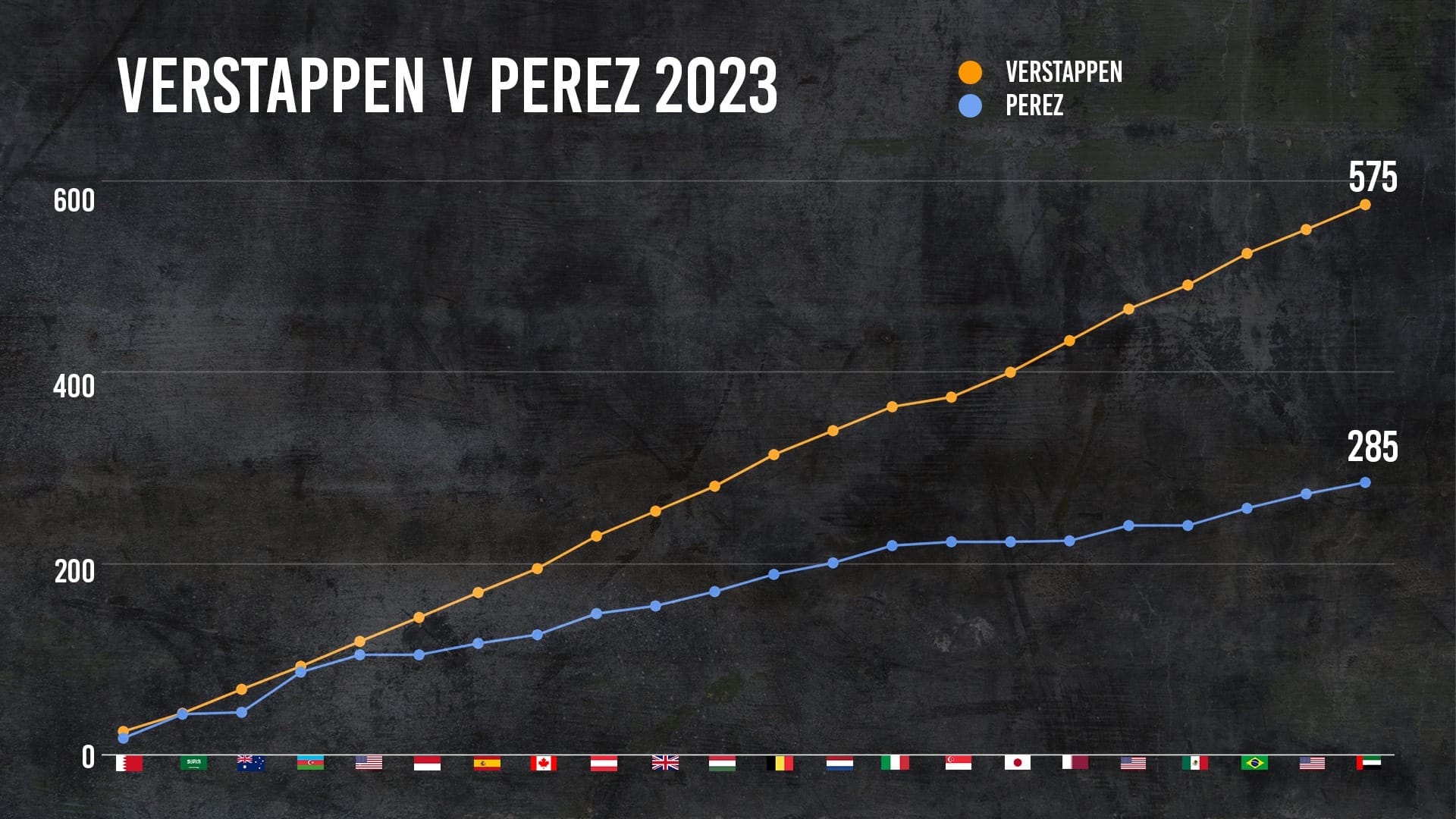
Mark Hughes on Verstappen's year: "It was an extraordinary performance even given the fact he clearly had the best car. It wasn't always the best car and there were points on several weekends where it was very difficult to extract a really good lap from it just because of its particular traits to do with the front tyre temperature and yet he always found a way, apart from in Singapore.
"He just made it look a lot more seamless than it really was. I don't think anybody else would have won as many races in that car as he did. He's just reached a level of innate confidence in himself and in the team and the calls they're making that allows him to operate in that special place.
"How long he'll be able to stay in that special place is anyone's guess but a big part of the dominance, the overwhelming dominance, should be attributed to him and he was extraordinary really."


